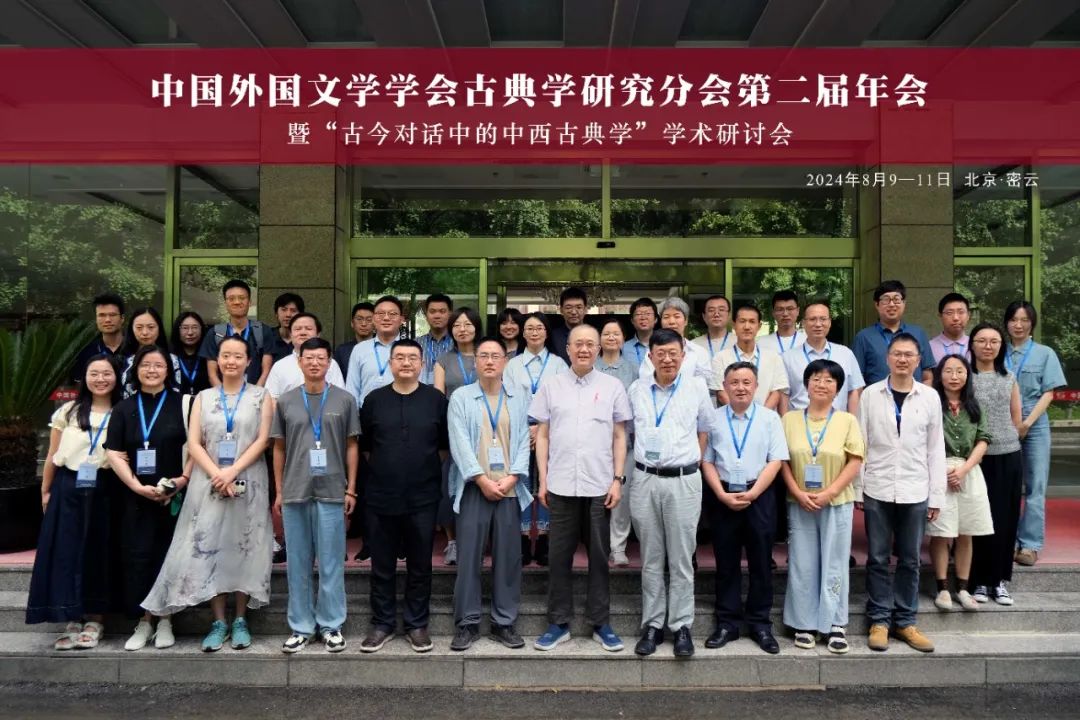

Trends
Collaborations
Recap: Proceedings of the Second Annual Conference of Classical Studies Association, CASFL and Symposium on Dialogue Between Ancient and Modern in Sino-Western Classical Studies
2024-09-02
Sourced from WeChat Official Account: Research in Classics
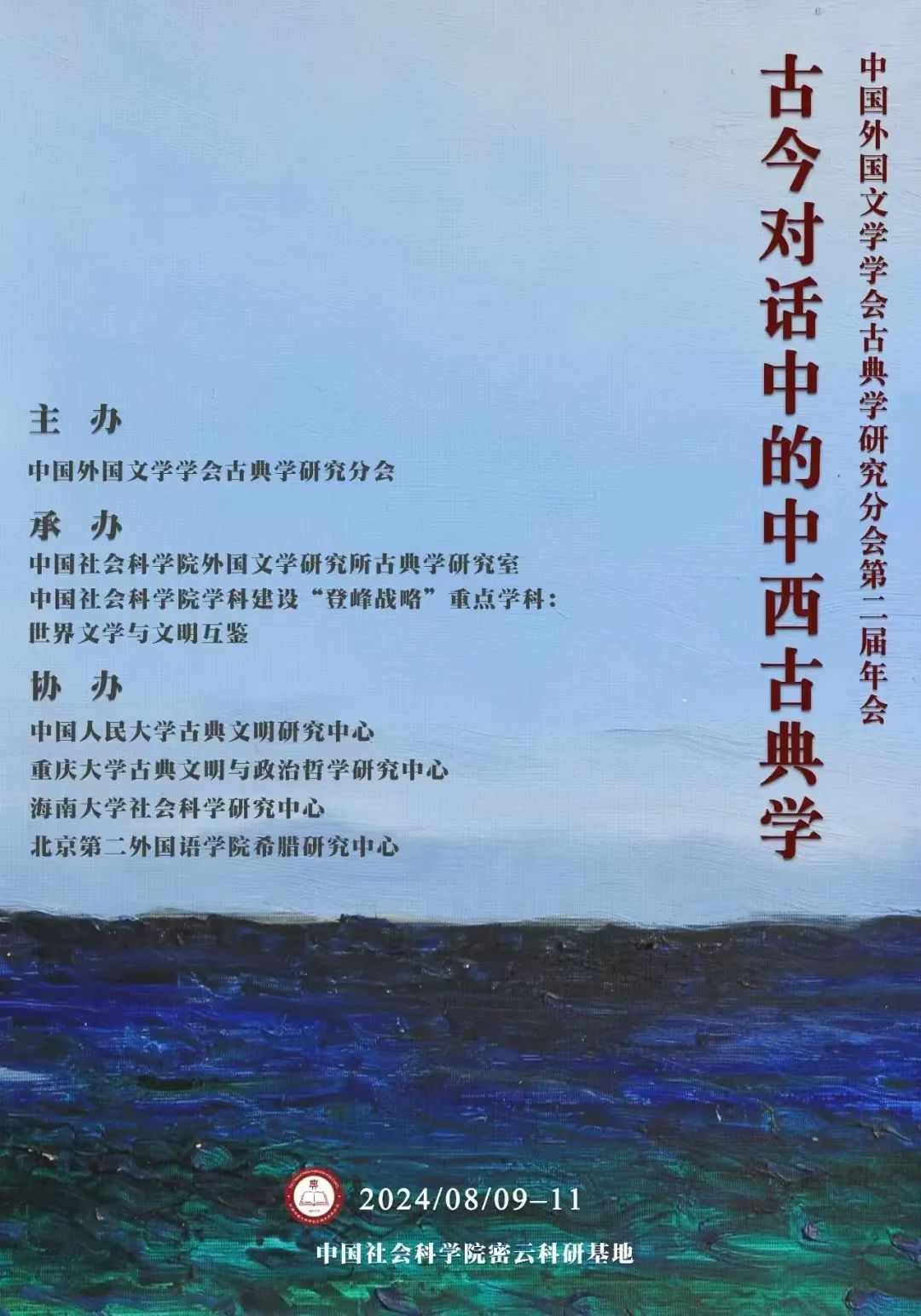
The Second Annual Conference of the Classical Studies Association of the Chinese Association of Studies of Foreign Literature and the Symposium on "Dialogue Between Ancient and Modern in Chinese and Western Classical Studies" was successfully held at the Miyun Research Base of the Chinese Academy of Social Sciences (CASS) from August 10 to 11, 2024. This event was organized by the Classical Studies Association of the Chinese Association of Studies of Foreign Literature and hosted by the Classical Studies Office of the Institute of Foreign Literature of CASS, as well as "World Literature and Exchange among Civilizations" as a key discipline of the "Peak Strategy" under CASS' discipline development initiative. The annual conference was co-organized by the Center for Classical Civilization at Renmin University of China, the Research Center for Classical Civilizations and Political Philosophy at Chongqing University, the Social Sciences and Humanities Center, Hainan University, and Center for Greek Studies, Beijing International Studies University. Nearly 40 experts and scholars from various universities and research institutions from China and abroad, participated in the event.
The opening ceremony
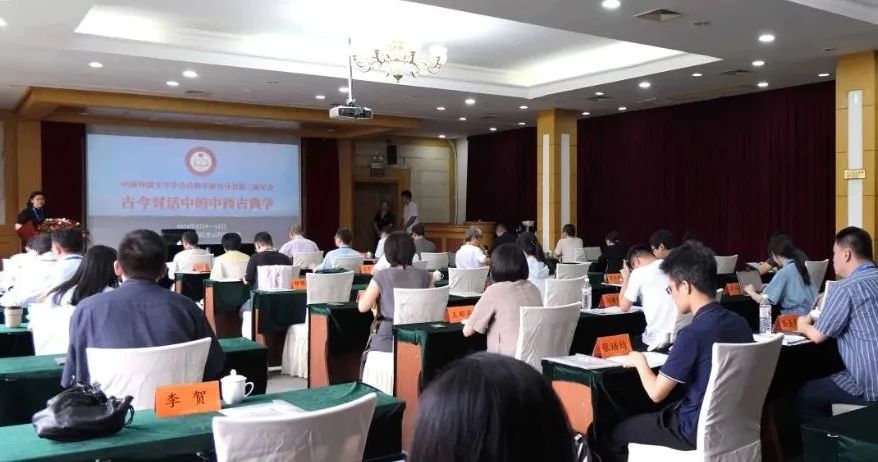
The scene at the opening ceremony of the conference
At 9 o'clock on the morning of August 10, the grand opening ceremony of the conference was held with great pomp and circumstance. The event was presided over by Researcher He Fangying, secretary-general of the Classical Studies Association of the Chinese Association of Studies of Foreign Literature. Professor Liu Xiaofeng, the President, and Professor Zhang Wenjiang, the Vice President, each delivered speeches during the ceremony.
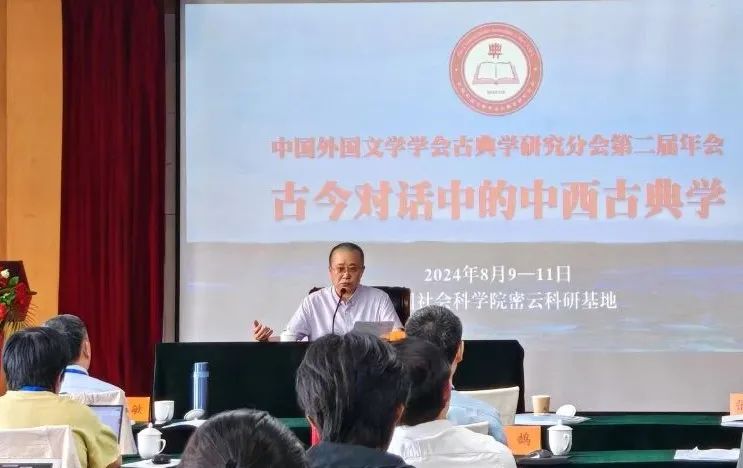
President Liu Xiaofeng warmly welcomed all the distinguished guests in attendance, expressing his hope that they would immerse themselves in the classical scholarship and relish the profound dialogues in a pleasant atmosphere. He proceeded to elucidate the origins and intellectual characteristics of the Classical Studies Association of the Chinese Association of Studies of Foreign Literature. The division was established with the support of the Classical Studies Office, and its hallmark is the annual conference aimed at collective reading and in-depth exploration of classical texts. Furthermore, the division operates on an invitation basis, with a focus on diligent newcomers who have made contributions in translation or research, thus providing a platform for emerging authors. President Liu Xiaofeng then addressed the current state of classical studies, noting its vigorous development amid numerous controversies. He emphasized the paramount importance of bridging the gap between Chinese and Western scholarship, as well as the divisions among literature, history, and philosophy, advocating for the strengthening of foreign literature studies, particularly those of ancient Greek and Roman literature.
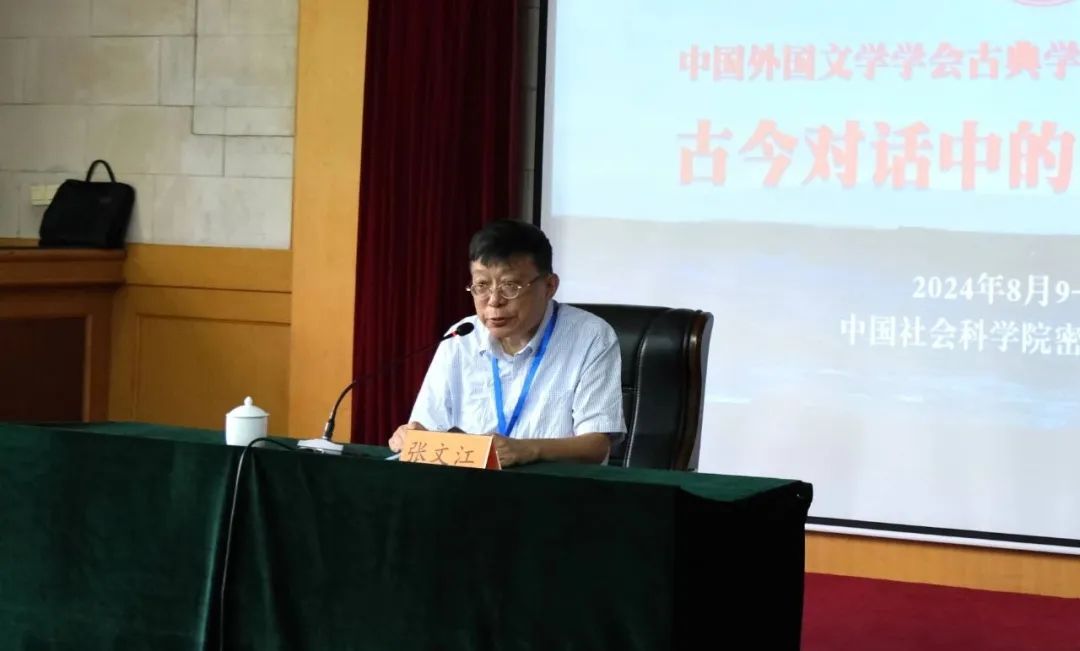
In his address, Vice President Zhang Wenjiang initially posed a pivotal question: How can classical studies inherently harmonize with national development and the advancement of civilization, thereby providing a space for individual aspirations? He further identified two related inquiries: "What is classical studies, and where does it originate and lead?" and "Why classical studies?" In response, he asserted that since humanity entered the stage of civilization, choices between good and bad have existed, inevitably giving rise to politics and hierarchy. Thus, exploring the origins of classical studies and classical philology from the perspective of human civilization is both necessary and paramount. Ultimately, classical studies should be grounded in reality, engaging with both the past and the future, to organize the achievements of civilization and foster personal pursuits.
Keynote addresses
Following the opening ceremony, the keynote speeches commenced under the theme "Dialogue Between Ancient and Modern in Chinese and Western Classical Studies," presided over by Professor Cheng Zhimin from the Social Sciences and Humanities Center, Hainan University. Professor Liu Xiaofeng from the Center for Classical Civilization at Renmin University of China and Professor Zhang Wenjiang from the Department of Philosophy at Tongji University each delivered their respective addresses.

Professor Liu Xiaofeng commenced his address with the theme "Classical Historiography and World History." He initially highlighted the distinctive characteristics and significance of world history research: the succession of great powers throughout world history, and the narrative of world history as a fundamental element for major powers to self-position their own civilization and development. Furthermore, the evolution of world history has traversed two pivotal phases: the Hellenistic period marked by Alexander's expansion, and the Age of Discovery. From the perspective of Chinese classics, works such as the Records of the Grand Historian and the Book of the Han Dynasty similarly reflect an awareness of the broader world historical context. China stands as the sole remaining traditional civilization, and for China's study of world history, the central issue lies in constructing its own approach to world history research. Ultimately, the significance of world history research is in understanding the character of different political entities, thereby recognizing the strengths of Chinese civilization.
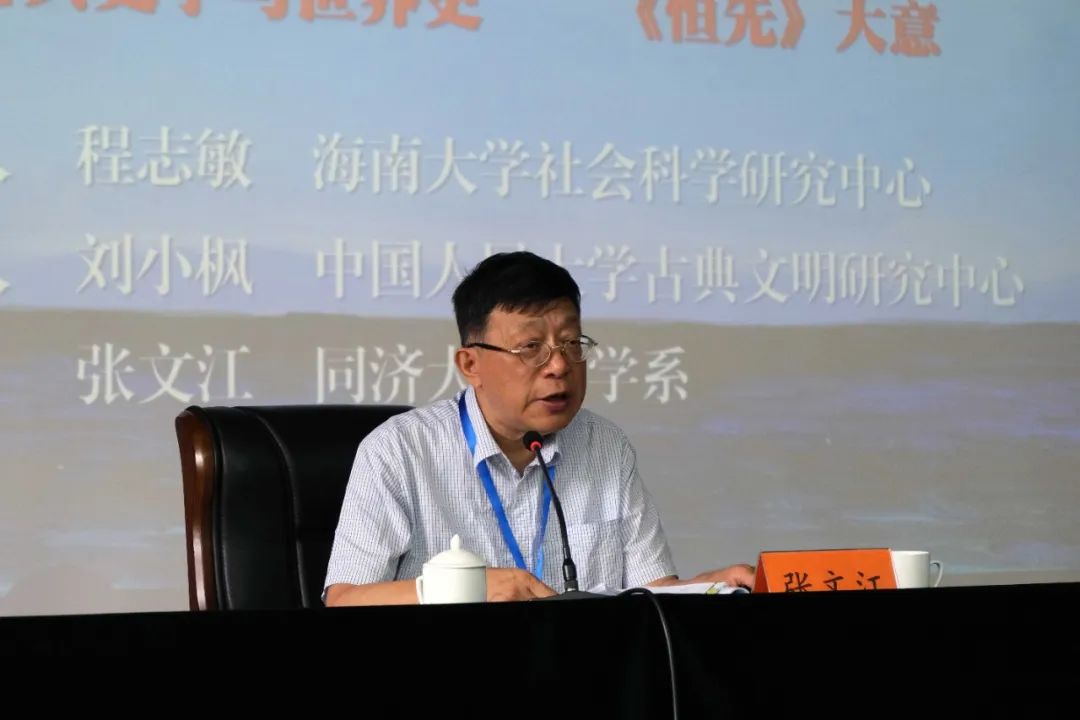
Professor Zhang Wenjiang's discourse centered on the theme of "The Essence of Heng Xian." He meticulously traced the textual lineage of Heng Xian, identifying three distinct layers in the work: First, from "hengxian wuyou" to "yin sheng qi suoyu," which alludes to the origins of the universe; second, from "the activities of heaven and earth" to "things that are not things, and meaningless matters," which pertains to social structures; and last, from "inconveniences should lead to benefits" to "in seeking, one is untroubled by worries," which delves into political philosophy. Professor Zhang posits that the author of Heng Xian must have been a philosopher of Confucius's stature. The establishment of a civilized society involves contributors at various levels, and the intended audience of the author encompasses three tiers, including the enlightened king (the emperor), the enlightened ruler (the feudal lords), and the enlightened scholar-officials. Amid its exploration of the rise and fall of civilizations and the origins of civilization itself, Heng Xian succinctly conveys philosophical reflections on competition, embodying its unique characteristic as a "military strategy that is not a military strategy."
Sub-forum discussions on August 10
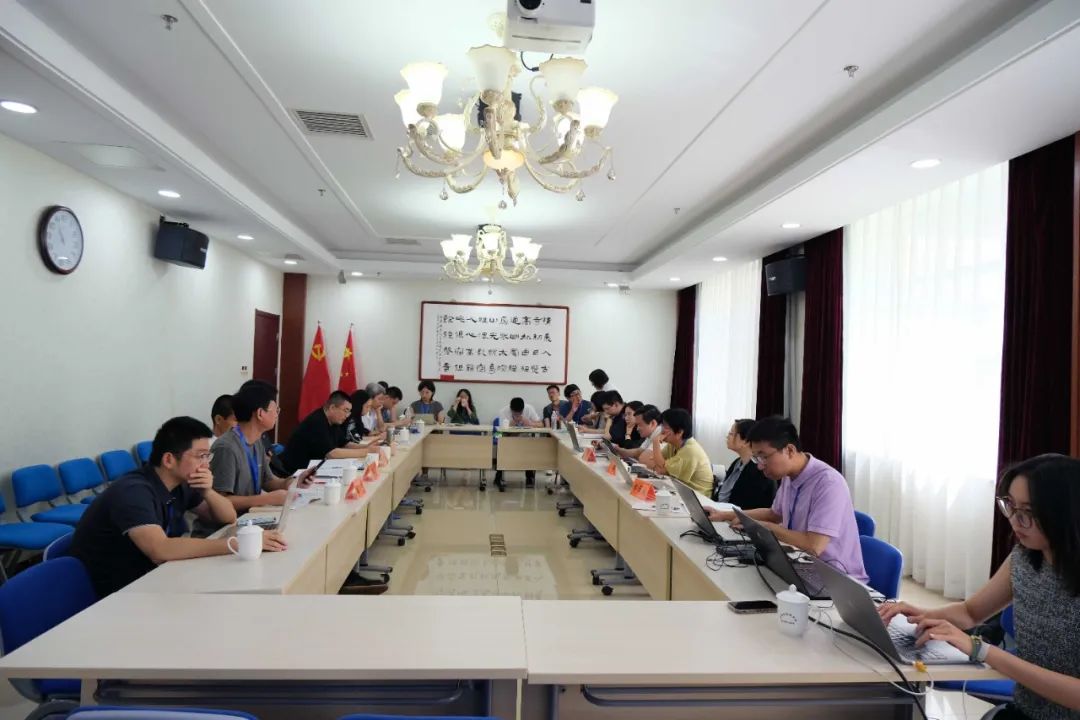
Following the conclusion of the opening ceremony and keynote speeches, the conference transitioned into the sub-forum discussion phase on the morning of August 10. During this conference, two sub-forums were scheduled. The first sub-forum was chaired by Researcher Lin Hu from the Institute of Ancient History, CASS, with Associate Researcher Chen Ming from the Institute of Philosophy, CASS and Associate Professor Lei Xinhan from the School of Humanities at Shanghai Jiao Tong University serving as commentators.
Sub-forum I
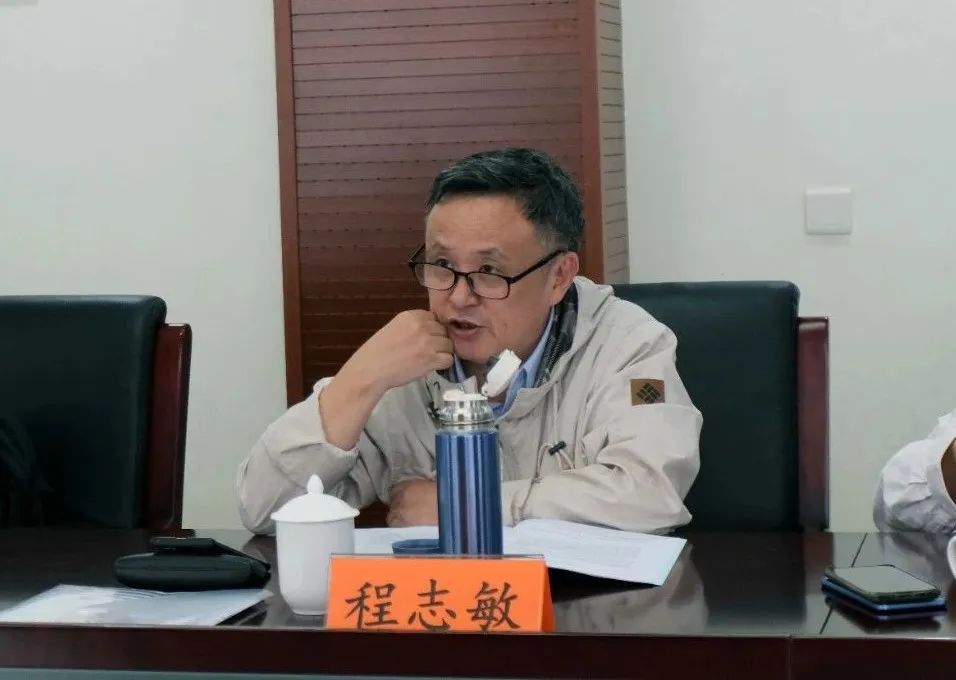
The first speaker was Professor Cheng Zhimin from the Social Sciences and Humanities Center, Hainan University. Professor Cheng's presentation was titled "The Original Imbalance of Inner Sage and Outer King." He highlighted that the concept of "Inner Sage and Outer King" represents the supreme ideal of Confucianism and, indeed, the entirety of Chinese civilization. The "Inner Sage" and "Outer King" were originally meant to complement each other without distinction in importance. Yan Hui, who emphasized virtue, embodied the Inner Sage, while Zigong, skilled in practical affairs, represented the Outer King. However, the status of the former was considered far superior to that of the latter. Xunzi was the first to recognize this imbalance, and Sima Qian endeavored to restore Zigong's reputation: Zigong, who possessed both refinement and substance and was generous in aiding others, was originally the foremost disciple of Confucius. Yet, he did not receive the respect he deserved in the Analects of Confucius or from later Confucian scholars, leading to an imbalance in Confucianism. Consequently, later Confucians increasingly emphasized the inner over the outer, prioritizing self-cultivation over governance, ultimately resulting in a complete rupture between the Inner Sage and Outer King.
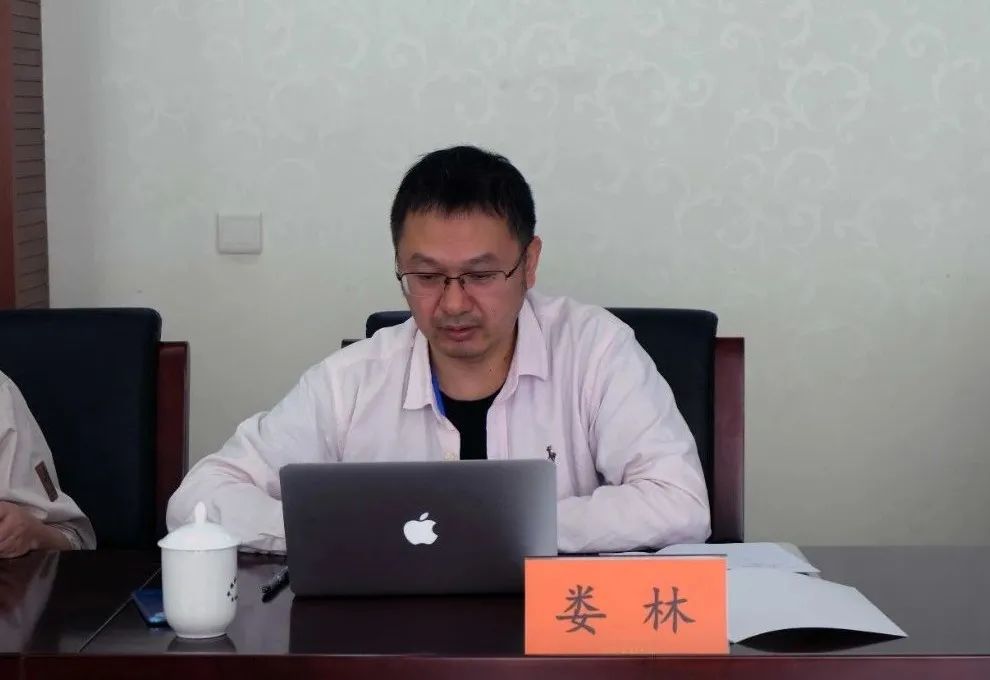
Associate Professor Lou Lin from the Center for Classical Civilization at Renmin University of China was the second speaker. His presentation, titled "A Brief Discussion on the Commentary of Spring and Autumn Annals: An Exposition on the ‘Substance Agreed but Not the Form' in the Gongyang Commentary," aimed to explore Confucius's method of praise and criticism through four evaluations of Guan Zhong in the Analects. This exploration seeks to uncover the Confucian principles of moral judgment on significant matters, with such principles most profoundly embodied in the Gongyang Commentary on the Spring and Autumn Annals. Confucius's assessment of Guan Zhong aligns with the Gongyang Commentary's notion of "substance agreed but not the form," as the three instances of praise in the Xian Wen chapter can be seen as agreement in substance, while the differing attitude in the Ba Yi chapter can be interpreted as disagreement in form. He highlighted that the Gongyang Commentary's discussion of "substance agreed but not the form" reflects the political realities of the Spring and Autumn Period (770-476 BCE), necessitating a meticulous examination of the internal structure and order of "substance agreed" and the fragile connection between political reality and "form."
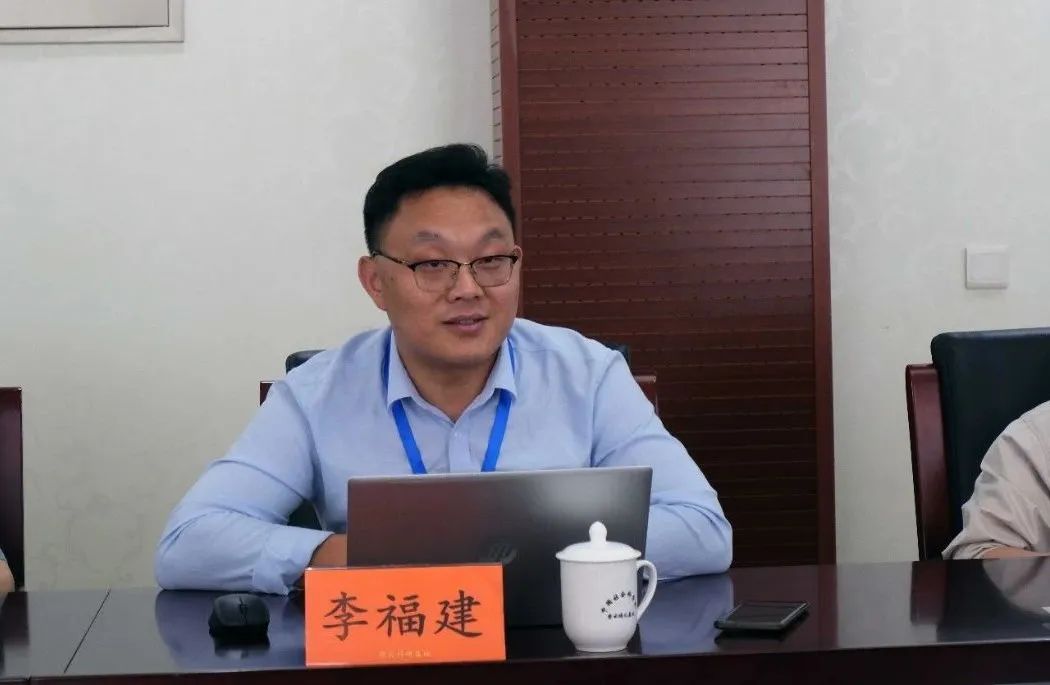
The third speaker was Professor Li Fujian from the School of Marxism, Guangdong Pharmaceutical University, presenting on the topic "Conservatism and Reform: The Political Philosophical Implications of Xunzi's ‘Following the Former Kings' and ‘Following the Later Kings'." He posits that, for Xunzi, the concepts of following the former kings and the later kings embody a complex dialectical relationship between conservative inheritance and innovative reform. Xunzi emphasizes that the refined scholars or gentlemen should "follow the later kings," while the great scholars or sages should "follow the former kings." This distinction is related to his understanding and judgment of human moral differences; not only are there distinctions among people as gentlemen or petty men, wise or foolish, virtuous or unworthy, but even among Confucians, there are divisions into common scholars, refined scholars, and great scholars. The pursuit of moral virtue varies among individuals, leading to corresponding differences in the paths of cultivation they should follow, the efforts they must exert, and the achievements and realms they can realistically attain.
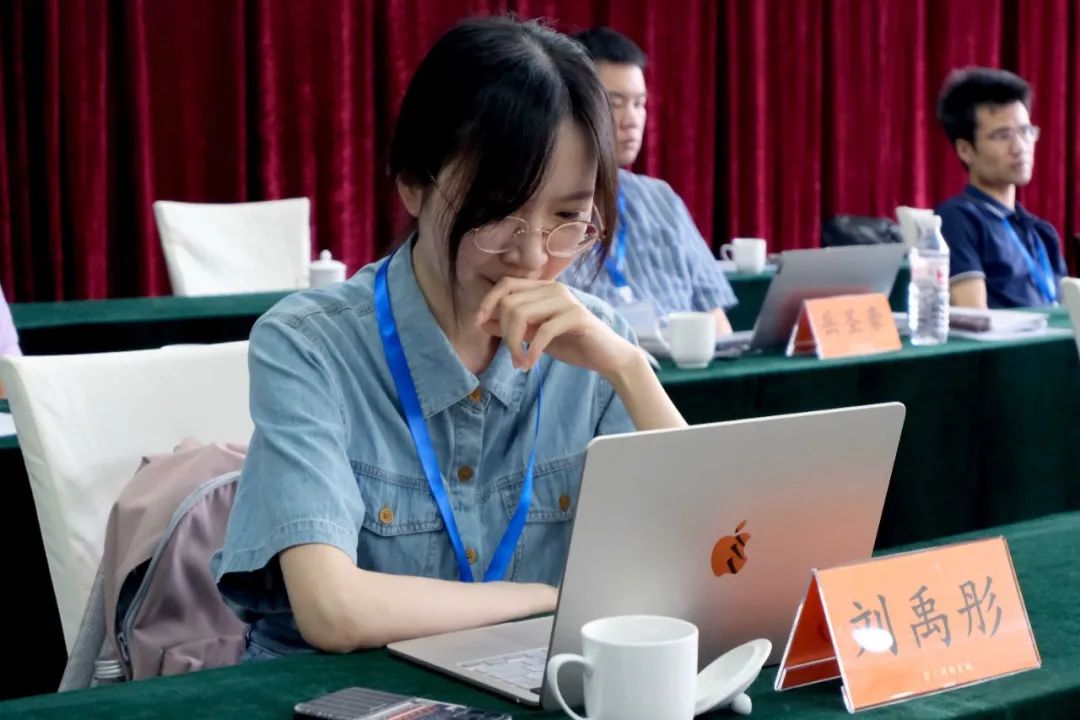
The final speaker was Liu Yutong, an assistant researcher at the Institute of Ancient History of CASS, presenting on "A Humble Discussion on the Study of the Doctrine of the Mean during the Han Dynasty." She highlighted that the Doctrine of the Mean officially separated from the Book of Rites to become a central text in the Four Books system since Zhu Xi's (1130-1200) era, leading to its neglect during the Han Dynasty (206 BCE-220 AD). In reality, however, the annotations by Zheng Xuan in the Eastern Han Dynasty (25-220) and the various chapters of Dong Zhongshu's Luxuriant Dew of the Spring and Autumn Annals in the Western Han Dynasty (206 BCE-25 AD) collectively outlined the fundamental framework of the Han Dynasty's studies on the Doctrine of the Mean. The Han scholars' inclusion of the Doctrine of the Mean in the Book of Rites was due to its discourse on the principles of rulers establishing teachings and rituals, the ruler's use of the Doctrine of the Mean to select talents of moderate virtue from the three ranks of human character, and the harmonious path of the four seasonal sequences. The study of the Doctrine of the Mean during the Han Dynasty was a comprehensive discourse on the rites that spanned the heavenly way and human emotions, serving as a crucial text bridging the study of rites and the study of the Spring and Autumn Annals.

At the conclusion of the sub-forum, Associate Researcher Chen Ming and Associate Professor Lei Xinhan each provided their evaluations, sparking a spirited and intense discussion among the attendees.
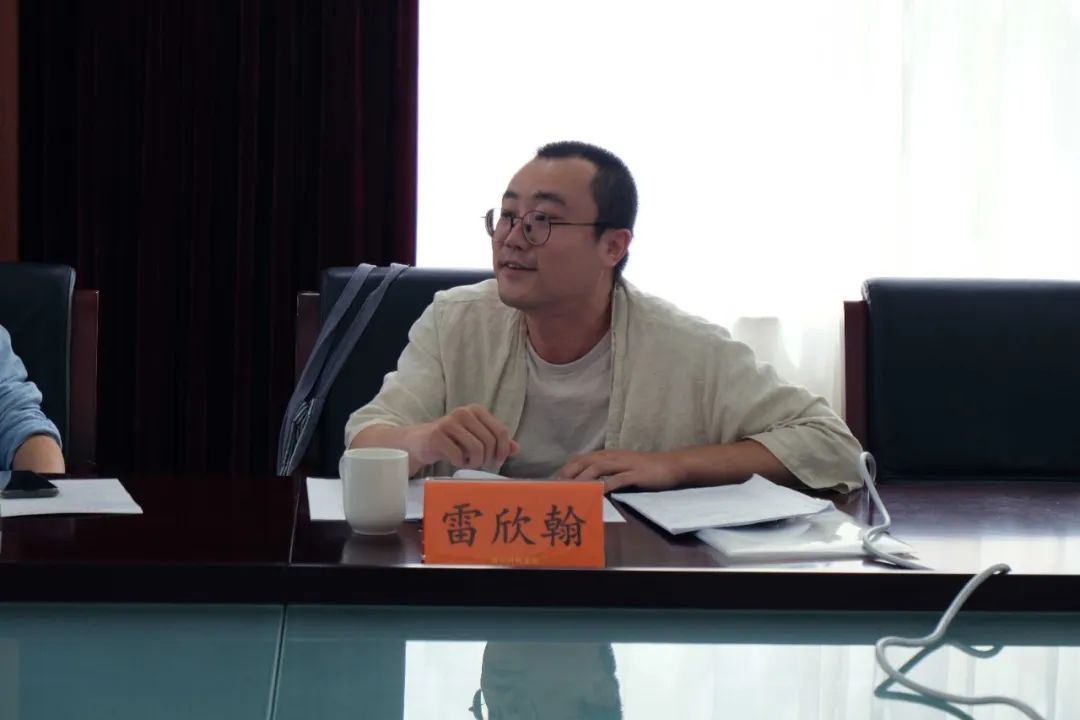
Sub-forum II
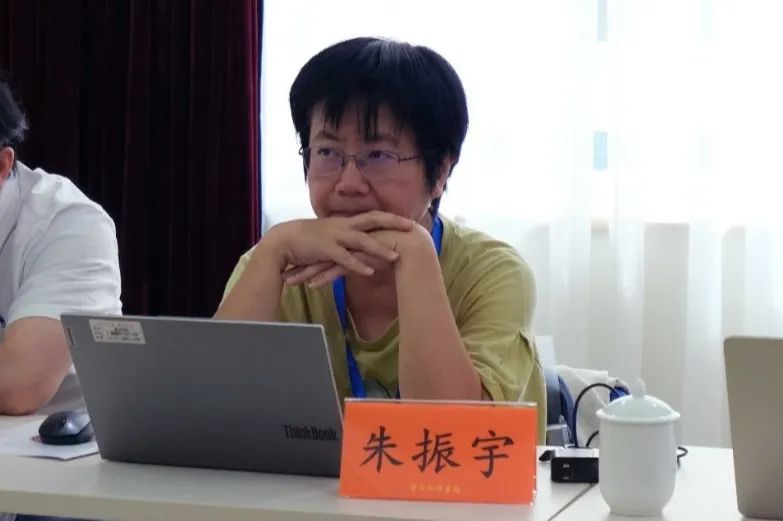
The second sub-forum on the morning of August 10 was presided over by Professor Zhu Zhenyu from the School of International Studies at Zhejiang University. Professor Huang Weiwei from the Center for Greek Studies, Beijing International Studies University and Associate Professor Xiao Youzhi from the College of Liberal Arts at Shanghai University served as commentators.
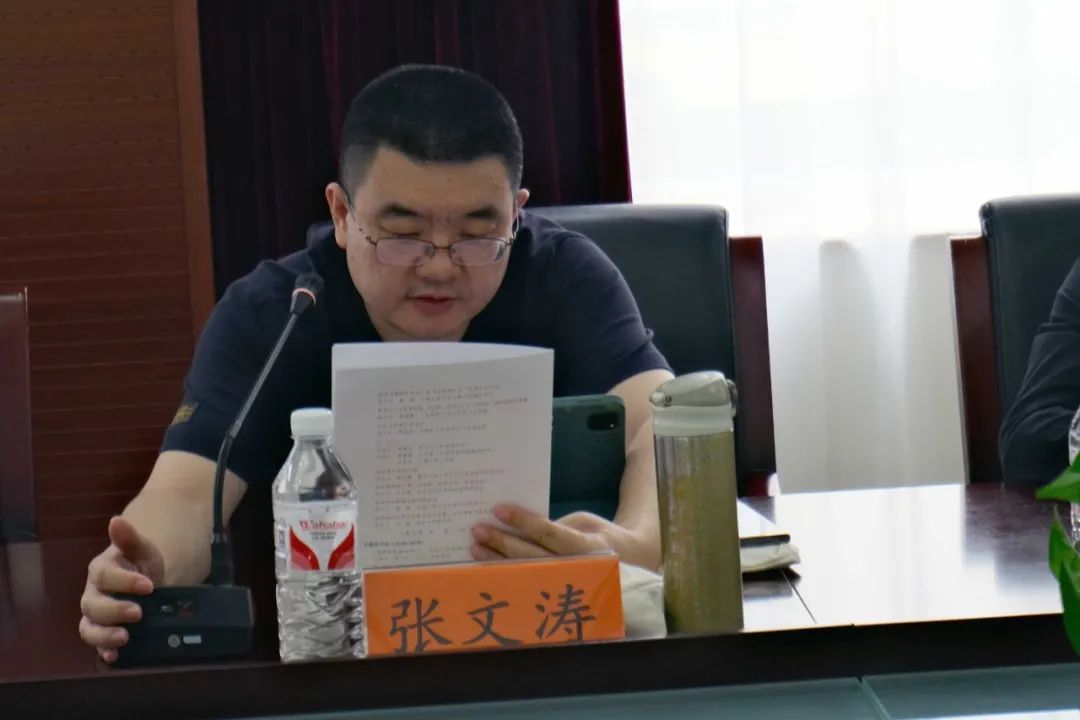
The first speaker was Professor Zhang Wentao from the Research Center for Classical Civilizations and Political Philosophy at Chongqing University, presenting on the topic "Plato and the Question of Empire." Through a textual analysis of the third book of Plato's Laws, he observes that Plato's classical political philosophy is primarily rooted in the political experiences of the ancient Greek city-states, with his ideal political entity not exceeding the scale of a city-state. However, this does not imply that Plato lacked contemplation on issues concerning large states, empires, or universal societies. In fact, from the legendary wars depicted by Homer to the Greco-Persian Wars before Plato's time, and the Peloponnesian War during his era, these events compelled Plato to ponder the concept of large states or empires and to reflect on significant issues such as the relationship between virtue, freedom, and empire, as well as universal society. In this sense, the third book of Laws represents Plato's engagement in a dialogue with Thucydides' The History of the Peloponnesian War on the contemplation of universal governance.
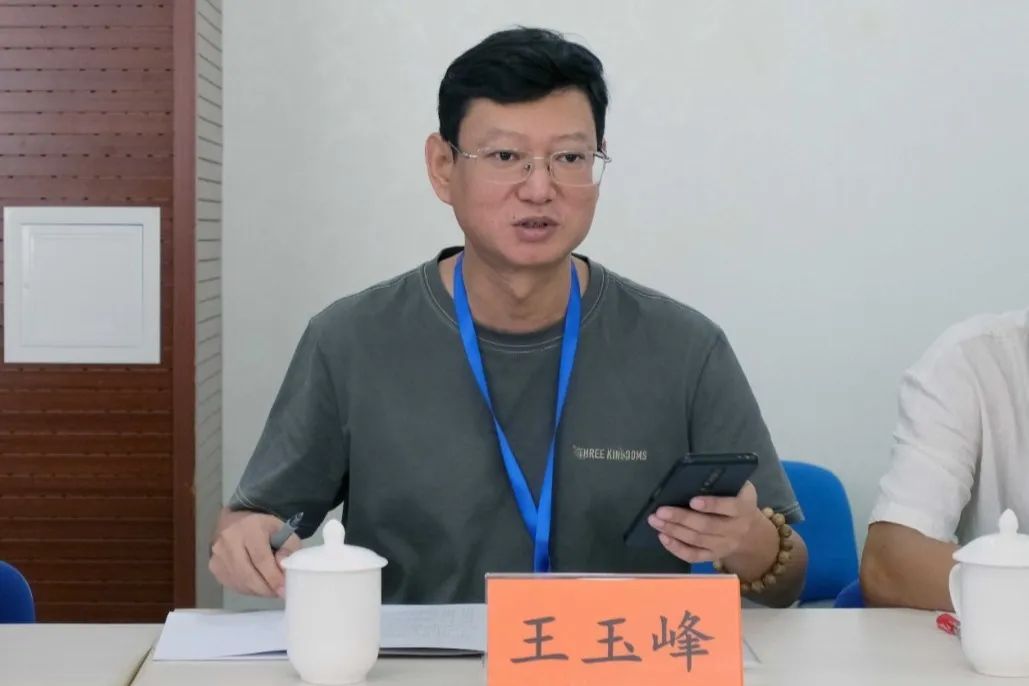
The second speaker, Researcher Wang Yufeng from the Institute of Philosophy at the Beijing Academy of Social Sciences, presented on the topic "The Immortality of the Soul in the Perspective of Plato's ‘Second Sailing'." He noted that the distinction between Socrates and Plato was initially drawn by Xenophon, Aristotle, and Cicero, and is also reflected in the transition from political philosophy to metaphysics in Phaedo. In Phaedo, Socrates argues that the early natural philosophers sought the causes of things merely from "sensation," whereas he himself appealed to "logos," using "ideas" to explain the reasons for the existence and change of things, thus initiating philosophy's "second sailing." Although "ideas" are subordinate to "nous" as the efficient cause and "the good" as the final cause, they provide a safer intellectual path for philosophy. It is only in this ideational perspective, opened by philosophy's second sailing, that the immortality of the soul can be properly understood.
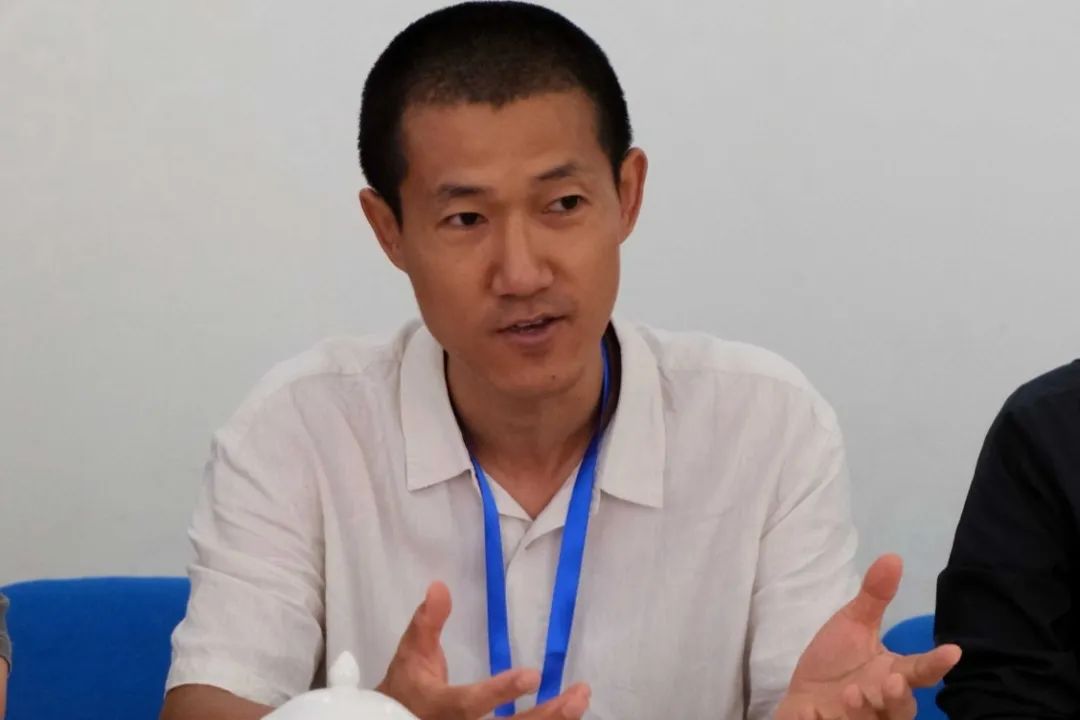
Professor Peng Lei from the Center for Classical Civilization at Renmin University of China was set to deliver a speech titled "Xenophon's Perspective on Socratic Dialectics." He argues that Xenophon has traditionally been regarded as less "philosophical" than Plato, and it is time to rectify this perception. By examining three aspects—whether Xenophon's Socrates investigated the essence of things, whether he employed the method of elenchus, and the origins of Socratic dialectics—Professor Peng uncovers contradictions in Xenophon's dialectical approach. Xenophon concealed the philosophical aspects of Socrates behind a veil, revealing only the most beneficial teachings in everyday conversations. This distinction sets Socrates apart from natural philosophers, establishing him as a philosopher of civic life. For Socrates, the primary distinction lies between "human affairs" and "divine matters," with dialectics bridging these two realms. Thus, Xenophon's writings themselves emulate Socratic dialectics.
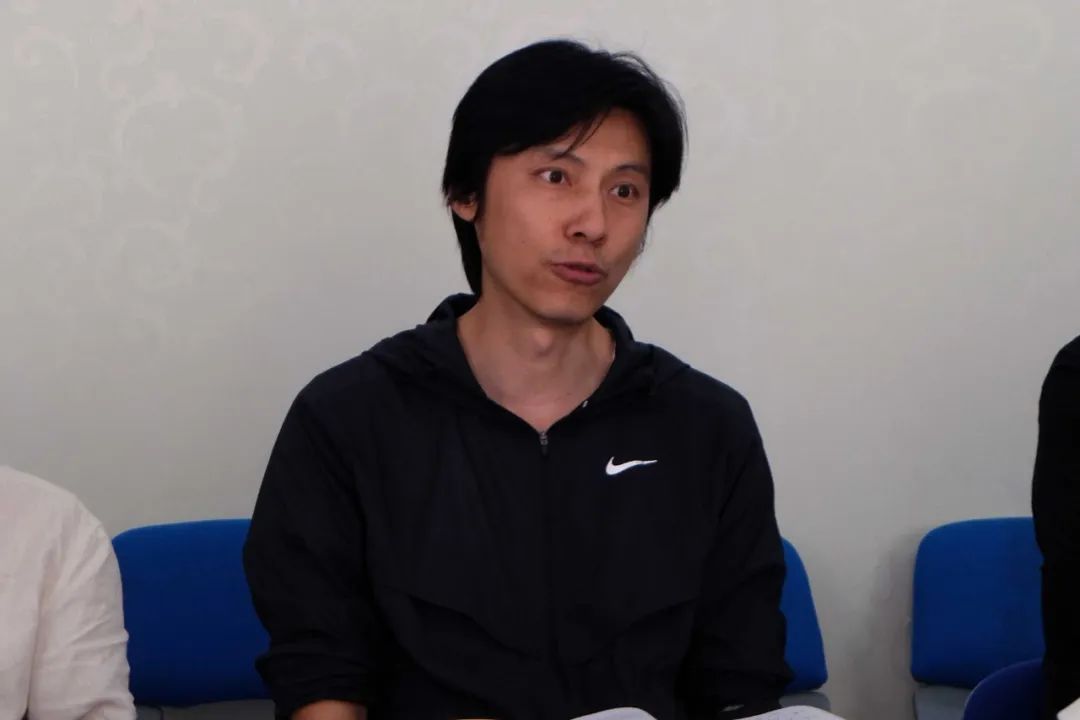
Associate Professor Liu Zhen from the Department of Philosophy at Yangzhou University delivered the final speech, titled "Strauss on Revealed Religion and Modern Enlightenment: Understanding Hobbes's Critique of Religion." He posits that Strauss's essay Hobbes's Critique of Religion: Understanding Enlightenment deserves as much attention as his renowned work The Political Philosophy of Hobbes. This is because it lays the foundation for discussing the transformation in Hobbes's philosophy and serves as a basis for examining the conflict between modern enlightenment and revelation, as well as the significant debate between classical and modern philosophy. Hobbes's fundamental logic involves critiquing revealed religion, replacing the world of revelation and nature with a man-made world. It was through the critique of revealed religion that Hobbes turned towards idealism. Strauss thus unveiled the incompleteness of modern philosophy, and this very judgment of modern philosophy is the reason Strauss returned to pre-modern thought.
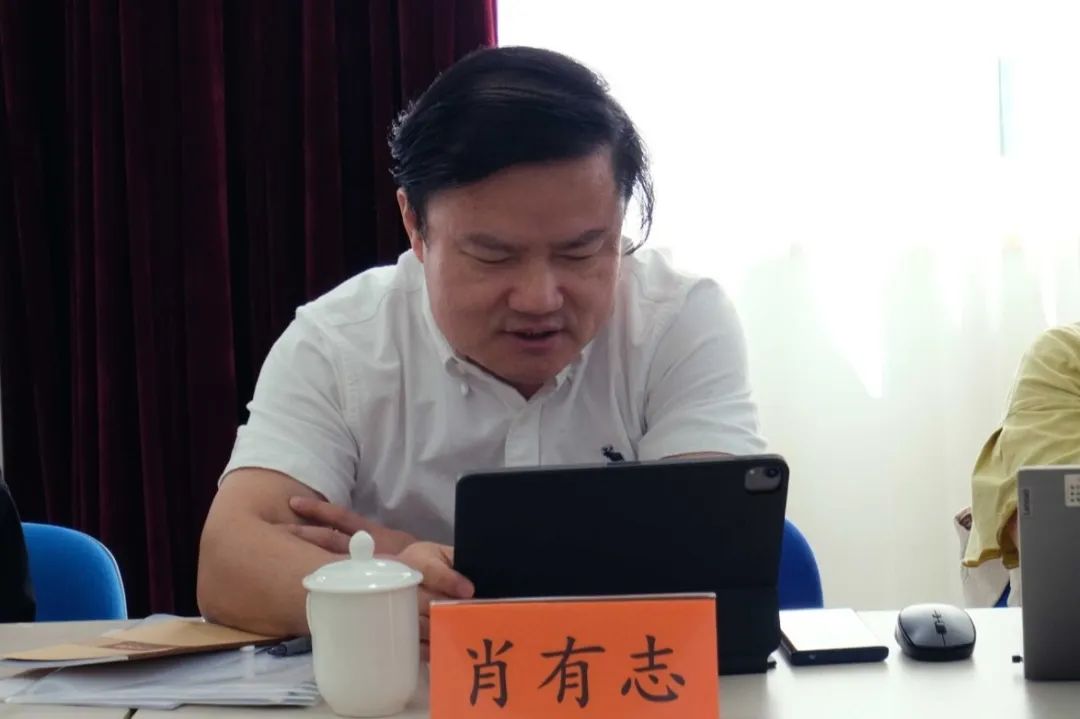
Ultimately, Associate Professor Xiao Youzhi and Professor Huang Weiwei each provided their evaluations, to which the speakers offered corresponding responses.
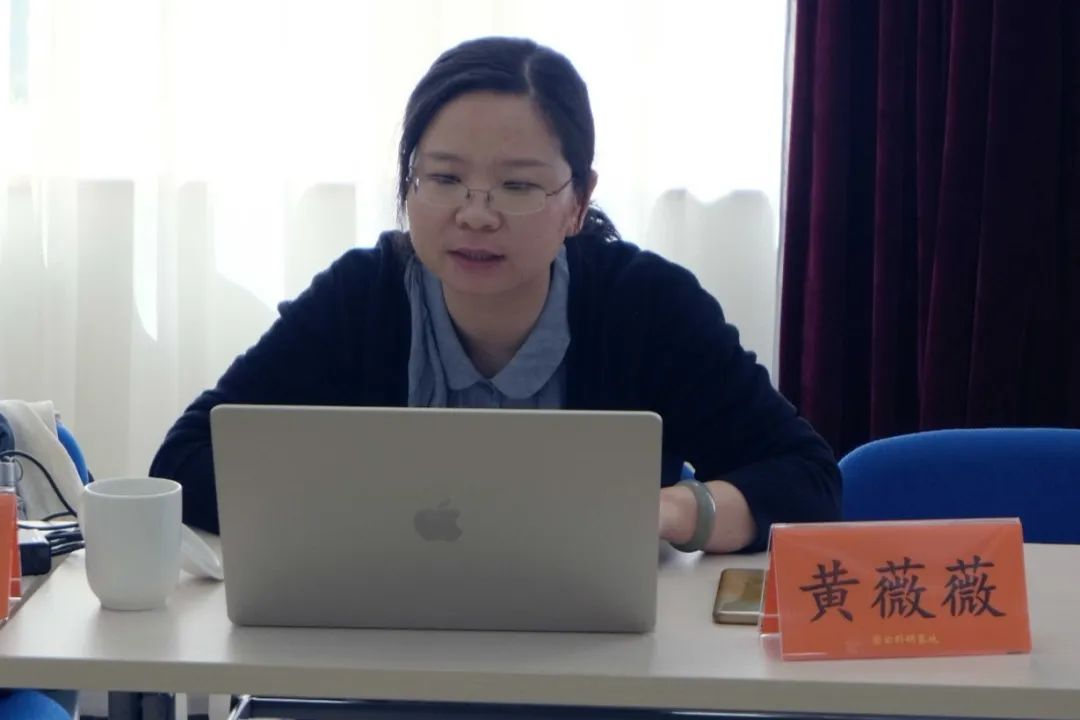
Thematic reading sessions
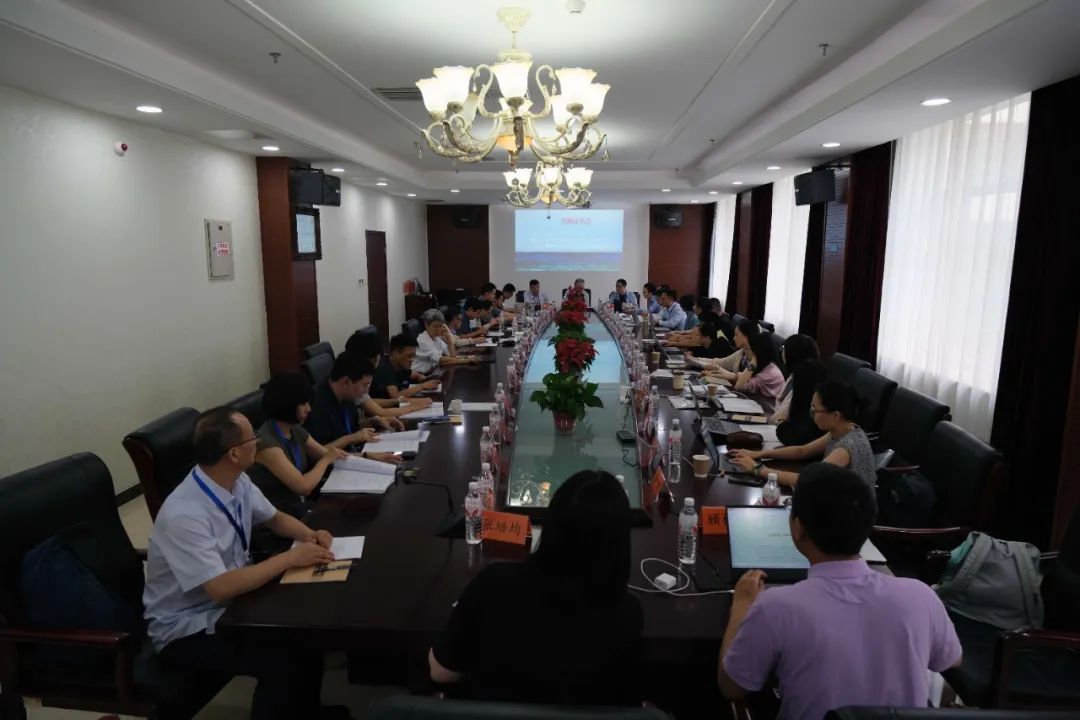
On the afternoon of August 10, two thematic reading sessions were held, presided over by Professor Zhang Wenjiang.
First reading session
The text for the first book discussion is the article Escaping the Legalist Trap: Wang Chuanshan on Monarchs and Ministers by Researcher Lin Hu. The session was led by Lin Hu himself, with primary discussants including Chen Ming, Lei Xinhan, Lou Lin, Li Fujian, Liu Yutong, and Liu Xiaofeng.
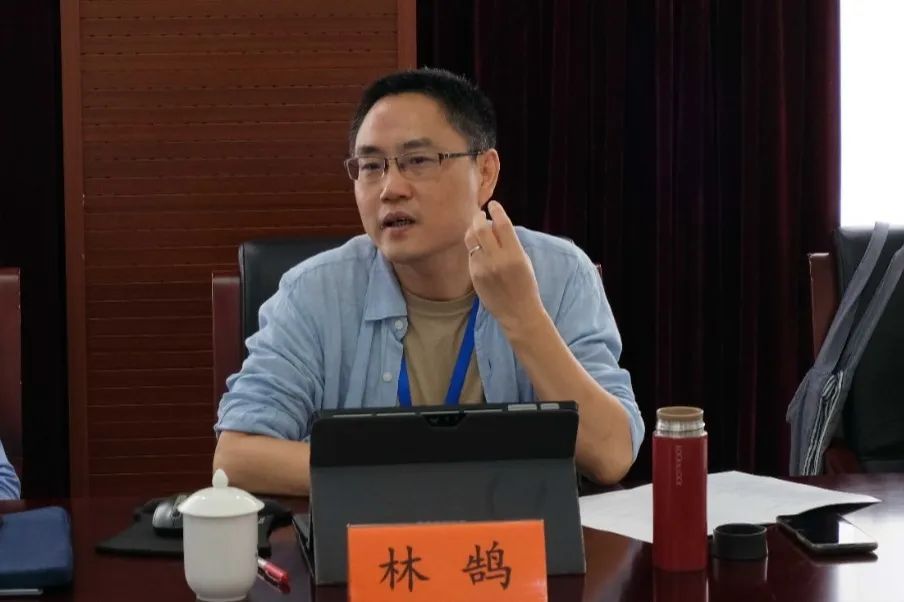
Researcher Lin Hu first elucidated the significance of Wang Fuzhi's doctrines and the trajectory of their dissemination. Although Wang Fuzhi provided a critique of the successes and failures of Chinese politics, his teachings gained truly prominence during a period when China was confronting Western influences. Lin Hu aspires to delve into the philosophical value inherent in Wang's historical works titled Reflections on Reading the Comprehensive Mirror and Reflections on the Song Dynasty. He shared his insights and intellectual journey from studying these texts, asserting that Wang Fuzhi was not only an astute historian but also a profound thinker. Lin Hu posits that Wang's works do not concern political systems per se; rather, they aim to cleanse the ideological toxins of Legalism on one hand, and on the other, to return to the political ideals of Duke Zhou and Confucius before they were tainted by Legalist corruption. The essence of the Three Earliest Dynasties (the Xia, Shang, and Zhou Dynasties), according to Wang, is not the specific institutions but the enduring spirit and the intrinsic political philosophy behind them. From this perspective, Wang Fuzhi can be seen as a revivalist.
Following the reading, the discussants offered their critiques and evaluations.
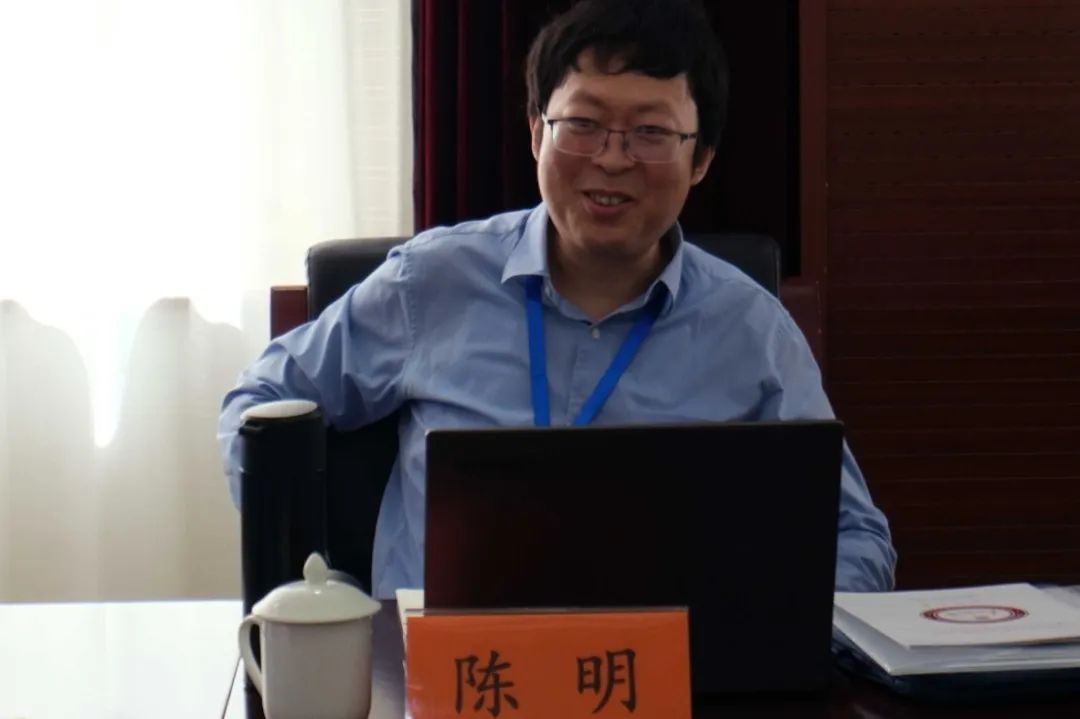
The first to speak was Associate Researcher Chen Ming, who acknowledged Wang Fuzhi's remarkable achievement in redefining and enriching the Confucian study of moral principles. He posited that it is essential to contemplate the pivotal shifts in historical moments and the human psyche in the context of a dynamic history. Secondly, defining the foundation of human nature and elucidating the inherent goodness of humanity through education is a complex issue. Building upon this, the distinction between Xunzi and the Legalists emerges as a topic warranting profound reflection.

The next speaker was Associate Professor Lei Xinhan. Approaching from the perspective of the Legalists, he emphasizes the unique significance of critical moments that determine survival and salvation. In this context, he poses a question: The political concerns of the Legalists, such as those of Han Feizi, and the concerns of Wang Fuzhi, as well as the overarching political concerns of ancient times, remain unchanged, namely, the love for and salvation of the people. Thus, in light of the diminishing importance of monarchs from the Pre-Qin Period (before 221 BCE) to the Ming (1368-1644) and Qing (1644-1911) Dynasties, what position does the monarch occupy in Wang Fuzhi's political framework?

Associate Professor Lou Lin continued his discourse, highlighting that the relationship between ruler and subject remains an eternal subject of political inquiry. However, when this paper delves into the triadic relationship of ruler, subject, and populace, the positioning of the populace requires further clarification. Although Wang Fuzhi discusses the necessity for both the monarch and minister to "fulfill their duties," the argument presented in this paper on this matter could be further strengthened. Additionally, the paper's interpretation of "escaping the Legalist trap" warrants reconsideration, as Legalism itself is an integral part of Chinese classical thought, and a Legalist ruler might not necessarily act independently of established systems. Thus, whether Wang Fuzhi's critique of Legalism is feasible remains a topic worthy of exploration.
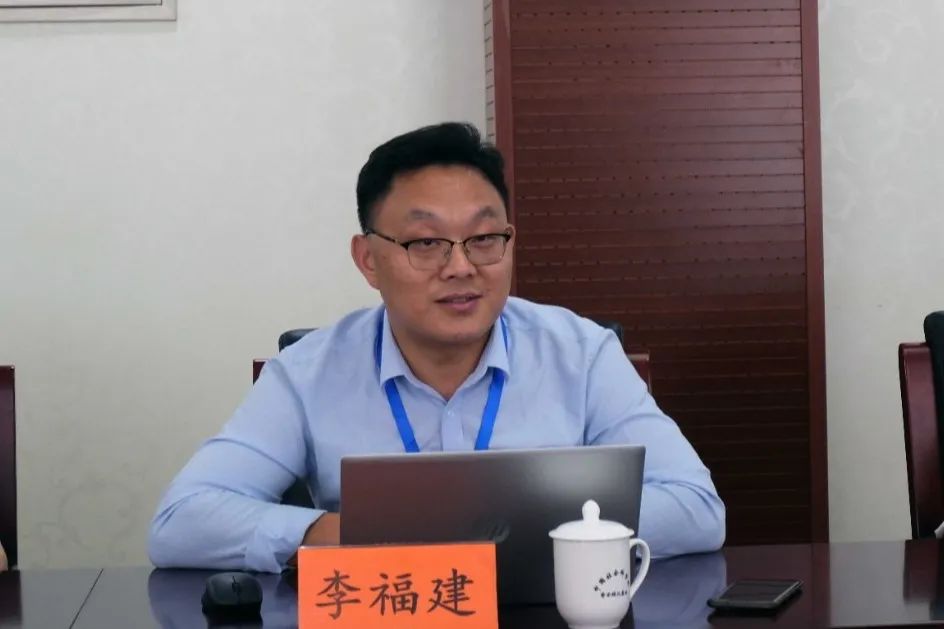
In his critique, Professor Li Fujian concurred with Associate Professor Lou Lin's perspective, asserting that the relationship between Legalism and Wang Fuzhi is not entirely adversarial. He further contended that the notion of the monarch not monopolizing all power, with the ruler enjoying leisure while ministers toil, is a concept shared by both Confucianism and Legalism.
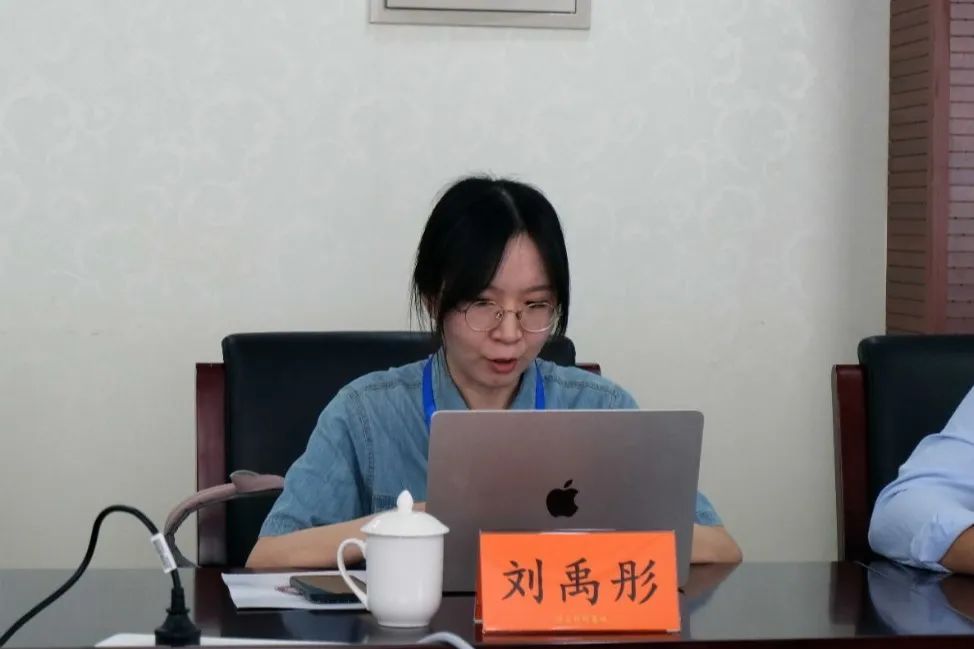
Next to speak was Professor Liu Yutong. She posits that the monarchs' suspicion and the factional struggles among ministers are not remnants of Legalist thought, but are instead a political reality. Furthermore, while a person of character may avoid conflict with petty individuals, Confucianism does not entirely eschew struggle. She cited specific systems, such as local supervision, to suggest that Wang Fuzhi might have had other considerations from the perspective of transforming Legalism through Confucian thought. Throughout history, there have been many thinkers who outwardly embraced Confucianism while internally adhering to Legalism, thus Wang Fuzhi's transformation of Legalism cannot be simplistically understood.
In conclusion, Professor Liu Xiaofeng delivered his remarks, suggesting that whether Wang Fuzhi's summation of the successes and failures of Chinese politics throughout history has reached the "ceiling" remains a topic open for further discussion. Additionally, he posited that the understanding of Legalism could be further deepened, as the text's portrayal of Legalist views on monarchy is, in fact, one-sided. This is because the notion of "the monarch's suspicion of ministers" does not necessarily encapsulate the entirety of Legalist philosophy. Similarly, the idea of "non-participation in struggles" does not fully encompass Confucianism. Professor Liu also highlighted that the suspicion between monarchs and ministers is a significant issue in political philosophy throughout history. Furthermore, the article could extend into reflections on the enduring stability and peace of China, such as the historically complex relationship between the central and local governments. Behind any profound understanding of politics lies metaphysical support.
During the open question session, numerous scholars eagerly participated, posing their inquiries. In conclusion, Lin Hu offered succinct and insightful responses to both the commentators' evaluations and the spontaneous questions from the audience. He emphasized that the primary focus of the paper is whether Legalism provides the ruler with ultimate values, which does not imply that only Legalism addresses institutional development while Confucianism does not.
Second reading sessions
The text for the second book discussion is an excerpt from Leo Strauss's lecture Socratic Rhetoric and the Philosophic Life: An Interpretation of Plato's Gorgias, led by Professor Liu Xiaofeng. The primary discussants include Ma Jiancheng, Zhong Bili, Pei Yanyu, Yue Shenghao, Yu Xue, and Li Tianyun.
Professor Liu Xiaofeng initially highlighted that the approach to studying classical texts is a significant issue. In the study of political philosophy, the most crucial question is the relationship between scholarship and politics, with the theme of Gorgias being the opposition between the philosophical life and the political life. On one hand, it is essential to observe how Strauss reads Gorgias. Strauss emphasizes the literary nature of Plato's works, aiming to address authors of various temperaments, with many important questions concealed at the hypertextual level. On the other hand, one must learn how Strauss articulates his thoughts. Strauss divides Gorgias into three parts. Professor Liu Xiaofeng guided the audience through the text's structure, particularly emphasizing Strauss's method of "arguing in the narrative" rather than "narrating in the argument." Finally, Professor Liu Xiaofeng underscored the relevance of reading Plato in contemporary times: since the French Revolution, the philosopher's ideal has been to "remake humanity." The connection between this ideal and Gorgias lies in the notion that coercive education cannot make one wise. The problem of enlightenment is precisely this: not everyone can live a Socratic life of loving wisdom, which implies that the desires of the few are unrelated to the comforts of real life. Thus, Gorgias serves as a rebuttal to modern stances.
After the lead, each participant delivered their remarks.
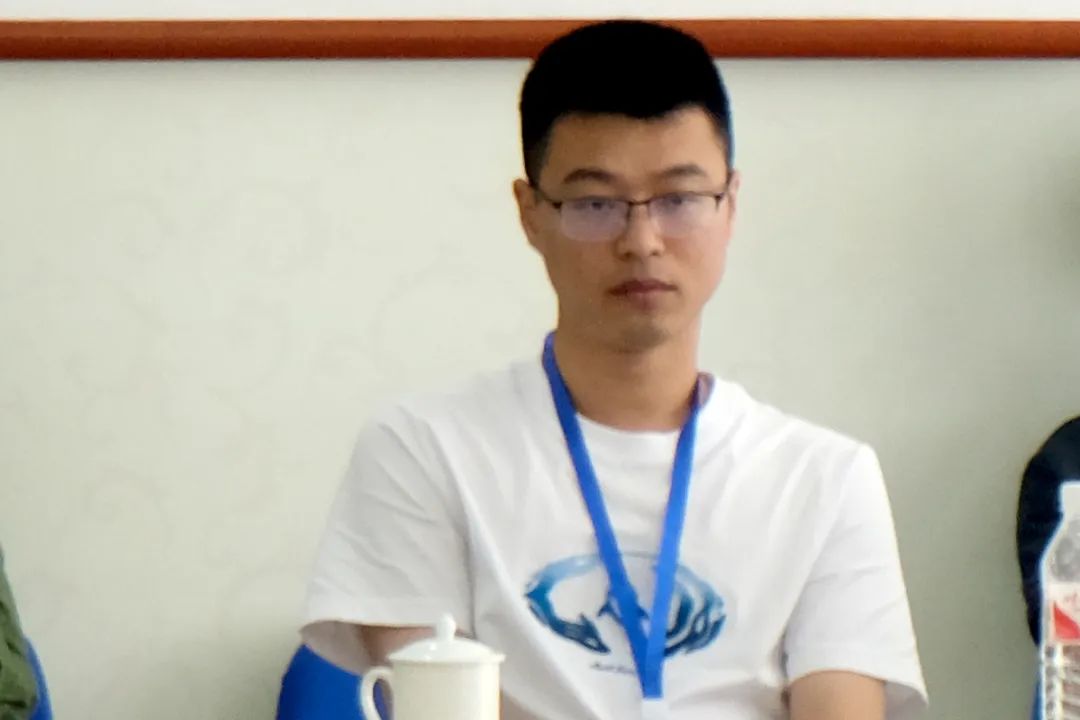
The first to speak was Ma Jiancheng from the Institute for the History of Ancient Civilization at Northeast Normal University. He expressed that he gained significant inspiration from the work, while also raising a question encountered during his reading: Why does Plato, in Gorgias, confine rhetoricians to the role of orators? Furthermore, does Plato's denigration of rhetoric and exaltation of dialectic imply a disparagement of orators and an elevation of statesmen?
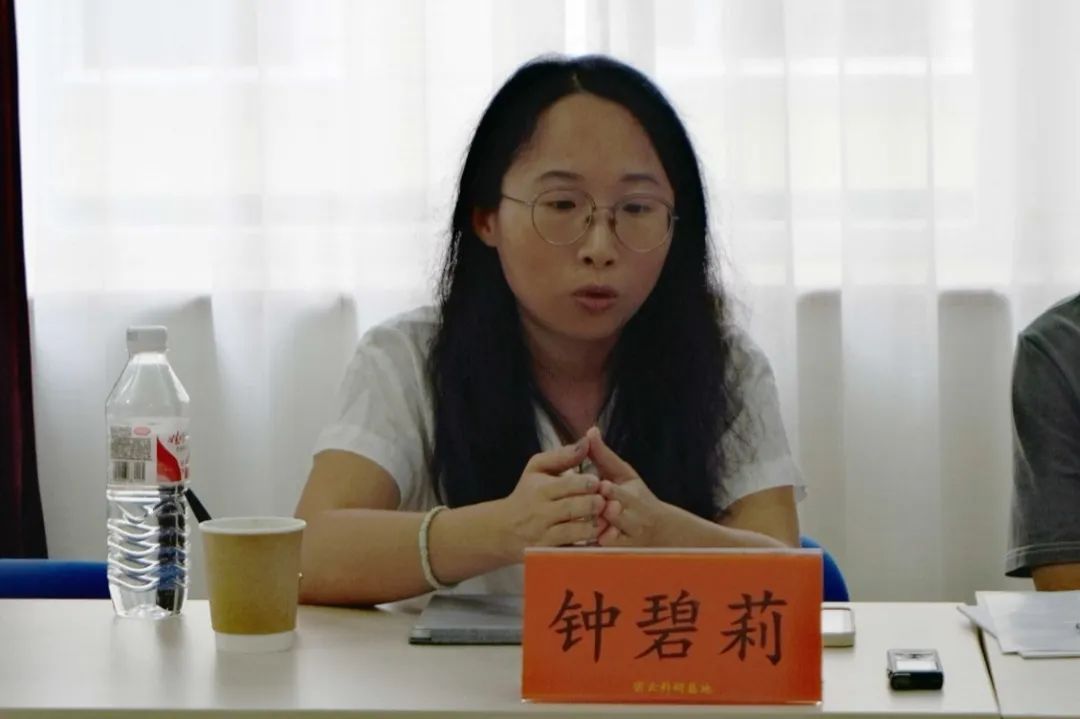
The next speaker was Associate Professor Zhong Bili from the Boya (Liberal Arts) College of Sun Yat-sen University. Her primary focus is the dialectical relationship between poetry and philosophy. She posited that although Plato sought to expel poets from the polis in his dialogues, he simultaneously emphasized their significance in other texts. During the Renaissance, figures such as Petrarch and Boccaccio continued the defense of poetry. Furthermore, Strauss noted that the revival of rhetoric was accompanied by a resurgence in cosmology and mathematics, marking a natural transition from the earthly to the celestial. Consequently, she believes that Strauss's lecture notes can also be viewed as a synthesis of the Renaissance school of thought.
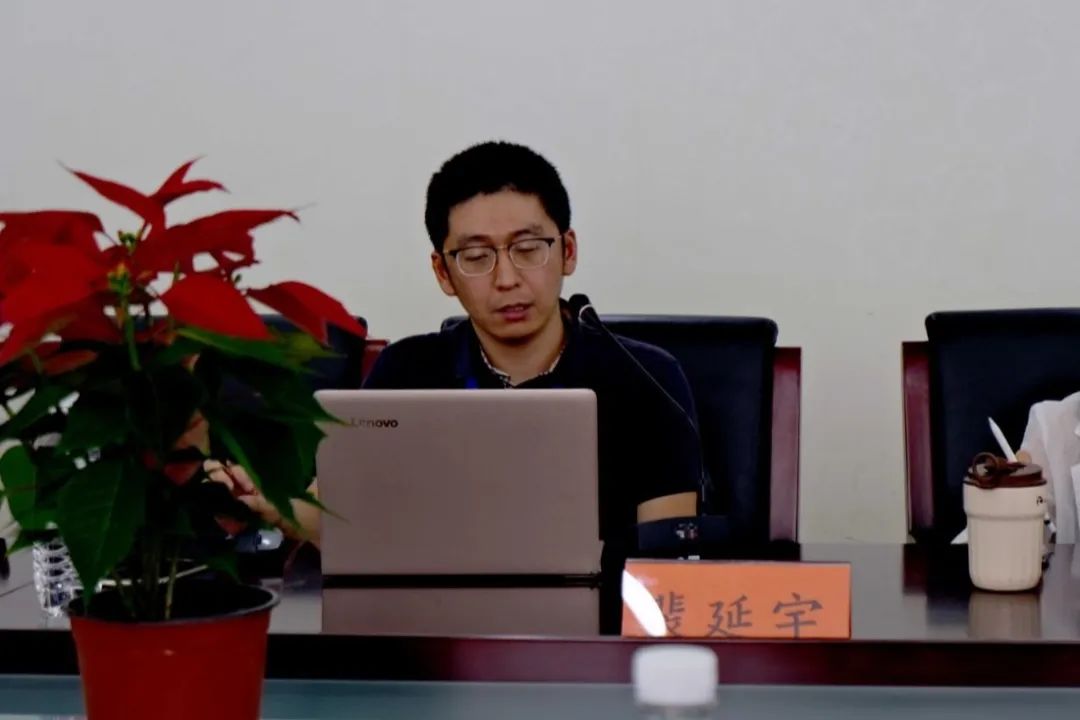
Pei Yanyu, an assistant researcher at the Institute of Philosophy of the Shanghai Academy of Social Sciences, highlights intriguing parallels in his readings of Plato. In the texts The Republic and Gorgias, there exists a correspondence between the characters Thrasymachus and Callicles. Both dialogues delve into the very essence of justice: Socrates considers the outcomes of justice, whereas Gorgias appears to evade responsibility for the injustices or consequences of his rhetoric, symbolizing the failure of the art itself. Together, The Republic and Gorgias illuminate the existence of justice, while simultaneously suggesting that in its absence, one is ultimately undone by their own craft.
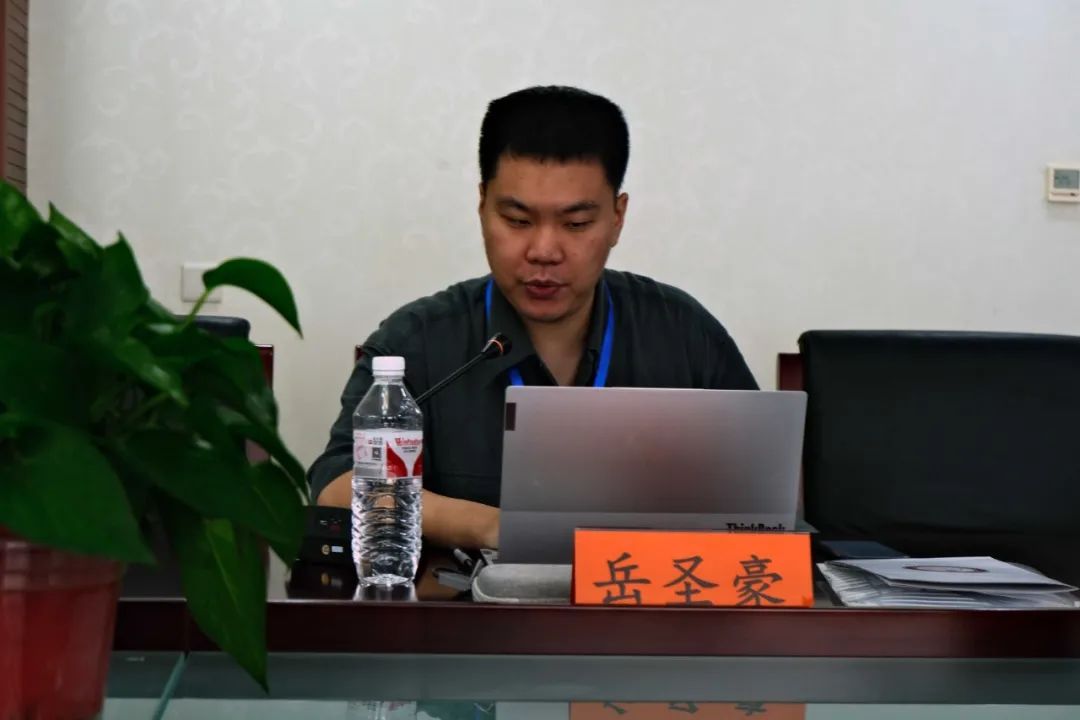
Yue Shenghao, a doctoral candidate in the Institute for Philosophy at Leiden University, continued his discourse by introducing the fundamental categories of the implicit and the explicit, as well as the significance of Socrates' death. Strauss highlighted that Gorgias raises the issue of the rhetorician's turn, while Strauss himself subtly incorporated the tripartite division of the soul from The Republic in his treatment of Callicles. His perplexity lies in the fact that Plato's expression here contradicts his later dialogues, such as Theaetetus, where the possibility of the rhetorician's soul turning is erased. This further implies that the alliance between the rhetorician and the philosopher in Gorgias is also impossible.
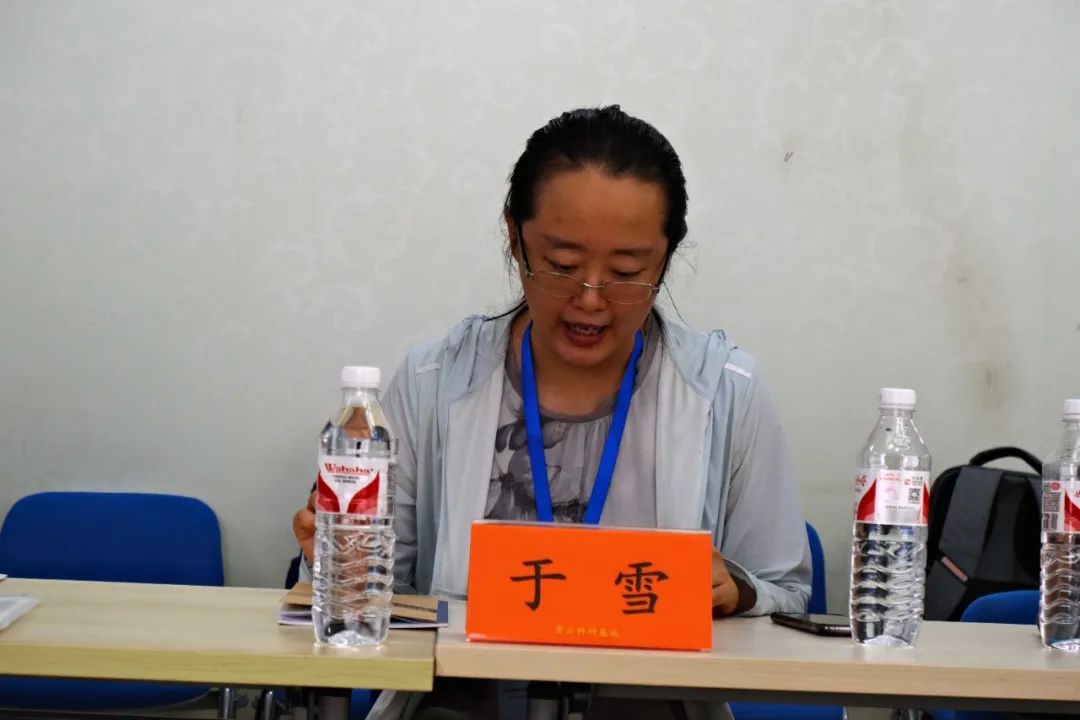
Professor Yu Xue from the School of English Studies of Dalian University of Foreign Languages provided an evaluation of the text from an etymological perspective. She discovered that Strauss placed significant emphasis on analyzing Plato's careful choice of words in the details of the text. In Gorgias, the citations of classical authors such as Pindar and Euripides reveal textual contradictions, which reflect Plato's ambivalent attitude towards poets as presented in the text.

Professor Li Tianyun from the College of Marxism at Hebei North University continued the discussion on the issues of explicitness and subtlety. He posited that the crux is whether there is substantive content behind the linguistic forms that Socrates pursued. Rhetoric, due to its value neutrality, is prone to misuse. Furthermore, the emphasis on linguistic analysis in twentieth-century Anglo-American philosophy essentially serves to defend external authority, as the denial of ultimate values leads only to superficial freedom. Thus, while Gorgias ostensibly addresses rhetoric, it fundamentally explores the phenomenon of value neutrality in political life.
Subsequently, numerous attending scholars shared their insights and posed questions during the question-and-answer session. The two thematic book discussion in the afternoon concluded successfully amid fervent discussions.
On the evening of August 10, the second meeting of the first council of the Classical Studies Association of the Chinese Association of Studies of Foreign Literature was convened. The council members engaged in discussions concerning the third annual conference, the society's development, and the construction of the classical studies discipline.
Discussion from the August 11 sub-forum
On the morning of August 11, a symposium centered on the theme of "Western Classics and Political Philosophy" took place, featuring two sub-forums.
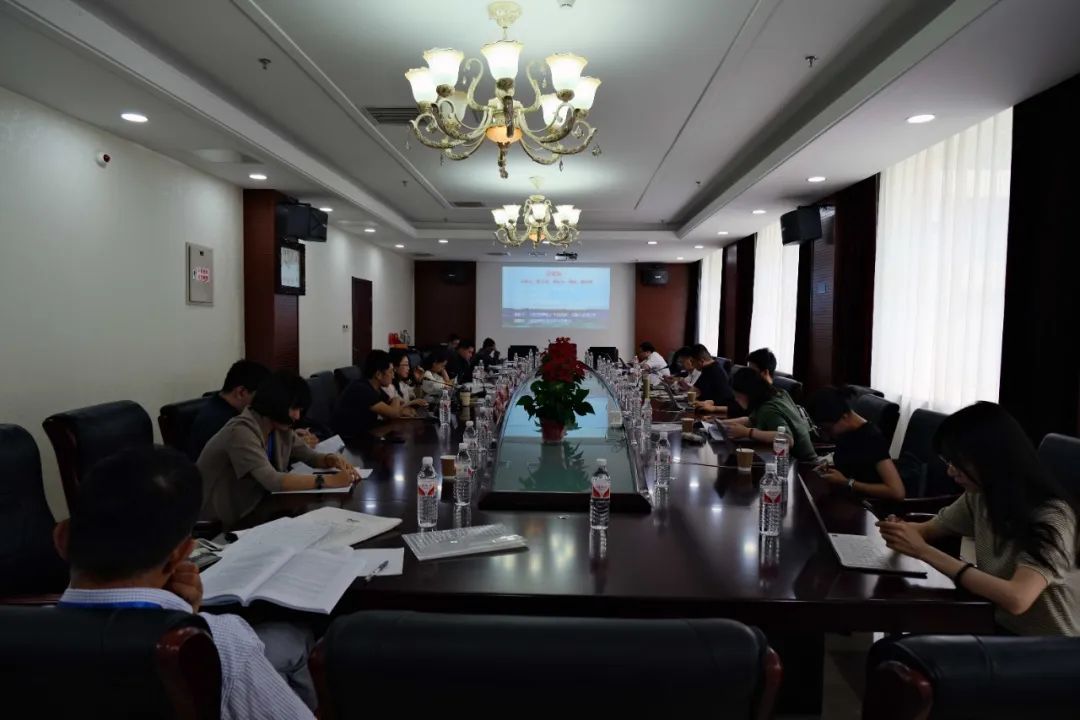
Sub-forum I
Sub-forum I was chaired by Professor Zhang Wentao, with Associate Professor Lou Lin and Assistant Researcher Zhang Peijun from the Institute of Foreign Literature of CASS serving as commentators.
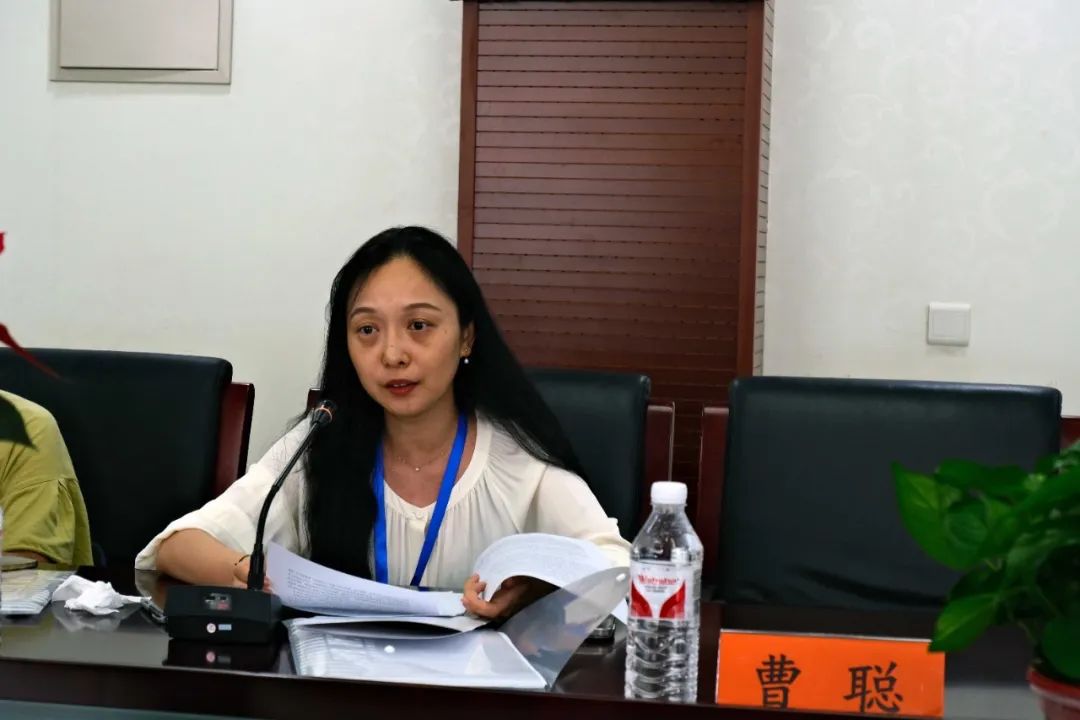
The first speaker was Associate Professor Cao Cong from the School of Humanities and Social Sciences at Xi'an Jiaotong University, presenting on the topic "Parmenides and the Problem of Political Philosophy." She highlighted that the trajectory of political philosophy suggests that the youthful image of Socrates in Parmenides symbolizes the form of a new philosophical beginning, marking a pivotal stage in the "Socratic turn." However, due to varying interpretations of political philosophy, there have been divergent readings of Parmenides in this trajectory, reflecting the dual aspects of Socrates. In fact, Plato demonstrates in Parmenides that behind the moral philosopher Socrates lies a profound philosophical foundation: the chasm between the world of phenomena and the world of ideas has transformed the new philosophy into a pathway towards the eternal question of the whole.
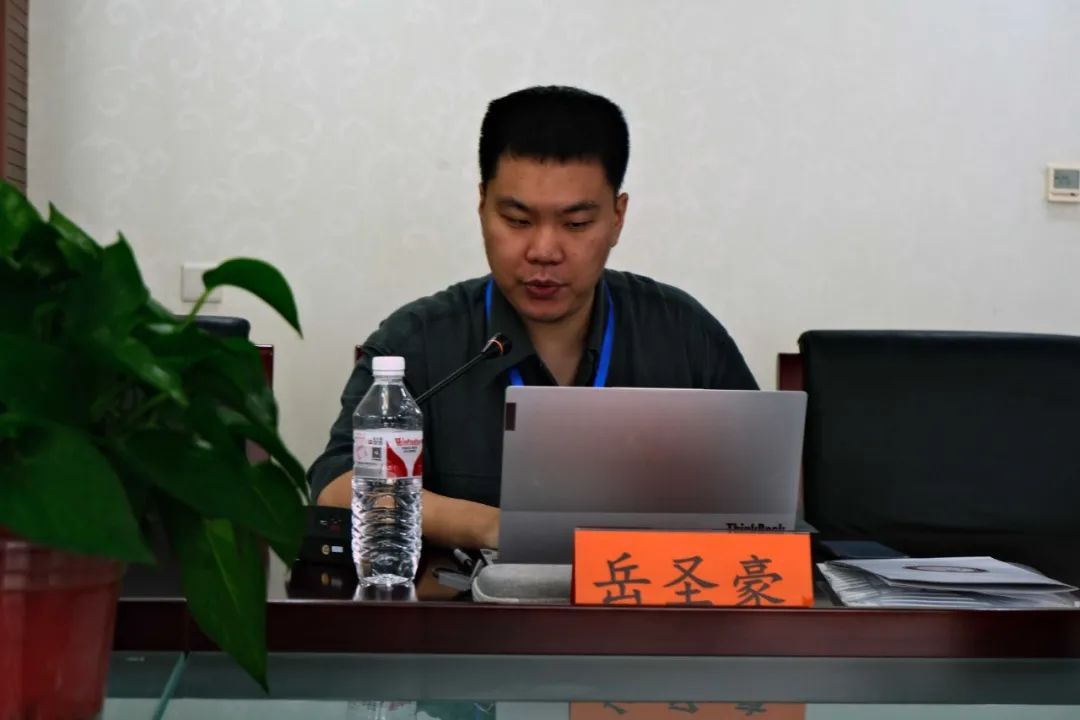
The next speaker was Yue Shenghao, a doctoral candidate from the Department of Philosophy at Leiden University. His presentation was titled "Generation and Necessity: Revisiting the Beginning of the Cosmogony in Timaeus." In Timaeus, the soul is recognized as the cause of all generations, no longer conflicting with the chaotic motion of the receptacle and primordial elements. Simultaneously, the soul is acknowledged as the cause of all generations, aligning with the holistic discourse of the later dialogues. He argues that although the cosmogony in Timaeus begins with the opposition between being and becoming, seemingly akin to the two-world theory in middle dialogues like Phaedo, there is a fundamental difference. In Timaeus, being and becoming do not encompass all existents; rather, this opposition emphasizes the contrast between the ordered and the chaotic worlds, highlighting the demiurge's act of imposing order upon the disordered cosmos. This implication is absent in the middle dialogues and does not contradict Plato's later efforts to reconcile the categorical opposition between being and motion.
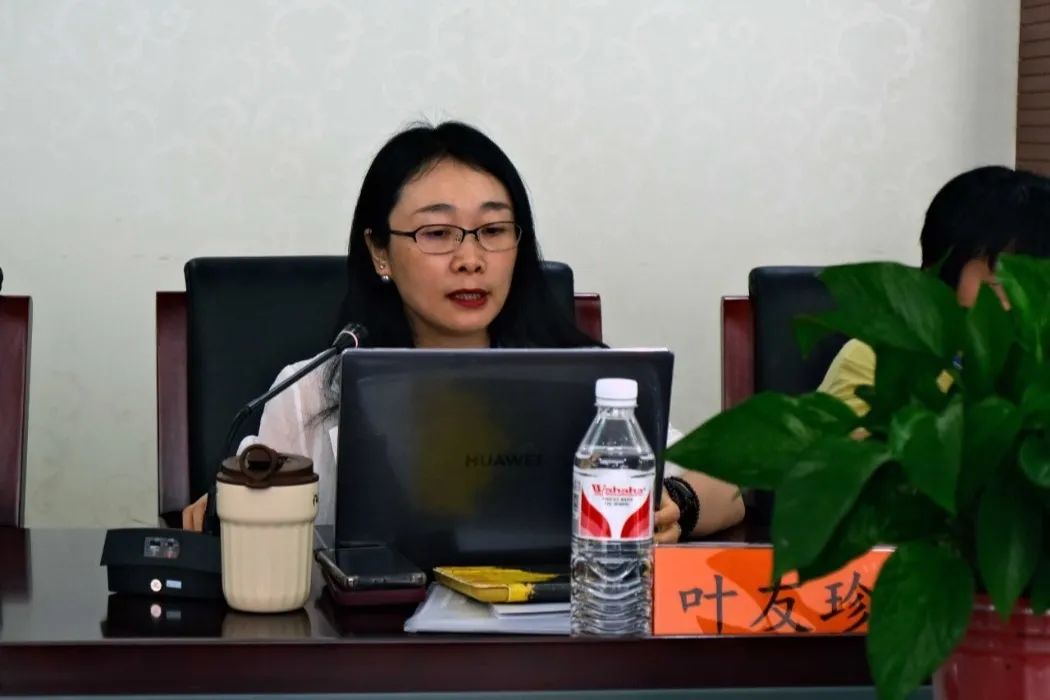
The subsequent speaker was Associate Professor Ye Youzhen from the School of Foreign Languages at Yan'an University, who delivered a presentation titled "From Plague to the Corcyraean Civil Strife: An Exploration of Thucydides' Pathology of the Soul." She observed that Plato's depiction of political systems is a masterpiece of psychological insight, transforming purely political phenomena into an internal pathological process of the human soul. When the harmonious balance among the soul's three parts is disrupted, the soul exhibits a pathological state, which in turn reflects a pathological process in the governance of the city-state. In contrast to Plato, Thucydides did not focus on exploring the ideal form of governance but rather on presenting the realities of politics and the immutable nature of humanity. Through the narratives of the plague and the Corcyraean civil strife, Thucydides, starting from political realities, projected the health and pathological processes of the soul onto historical scenes, clearly illustrating the occurrence of soul pathologies and the soul's states that are crucial to the governance of the city-state.
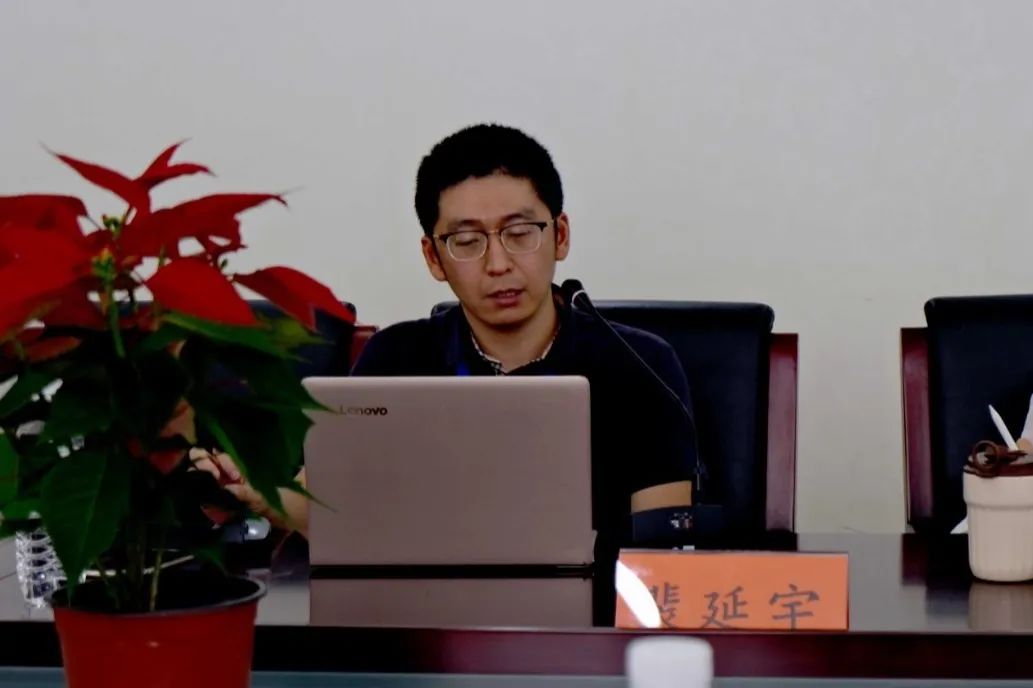
Professor Pei Yanyu continued the discussions, titled "Aristotle on Nobility and Its Relation to Virtue." In Aristotelian ethics, the concept of nobility (καλόν) stands as one of the pivotal themes. Modern scholars engage in extensive debates concerning the meaning of καλόν, its translation, its role in ethical discourse, and its connection to other ethical issues. In truth, the term "nobility" encompasses a wealth of connotations, manifesting in three fundamental forms, including order, symmetry, and limitation. Simultaneously, as a foundational ethical concept, the intrinsic significance of "nobility" is its being good that is inherently worthy of choice and praise, representing the inevitable manifestation of goodness and marking the unity of beauty and virtue.
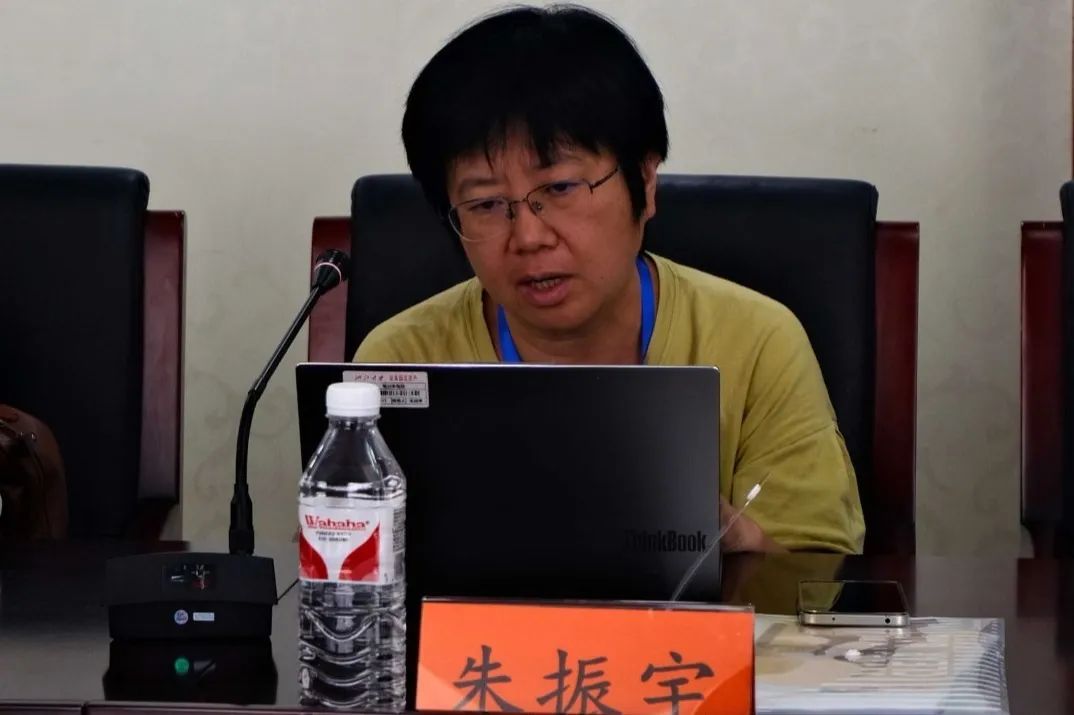
The subsequent speaker was Professor Zhu Zhenyu, who presented on the topic "The Gods, Heroes, and the Dream of Empire in the Aeneid." She posited that the Aeneid is not merely a paean to Augustus but also encompasses themes of divine intervention and fate, the romantic tales of Aeneas, and the myriad experiences encountered during his exile. Professor Zhu explored the multifaceted meanings embedded in the Aeneid from three perspectives, including the gods, the heroes, and the "descent into the underworld." In this epic, the powers of the gods, the inner world of humans, and the subterranean realm of the underworld all harbor complex forces. The history of the empire serves as a microcosm of human history, illustrating that civilization cannot be disentangled from nature, which in turn imparts its intricate forces upon history. It is precisely this complexity that has forged the Aeneid into an epic rich with humanity.
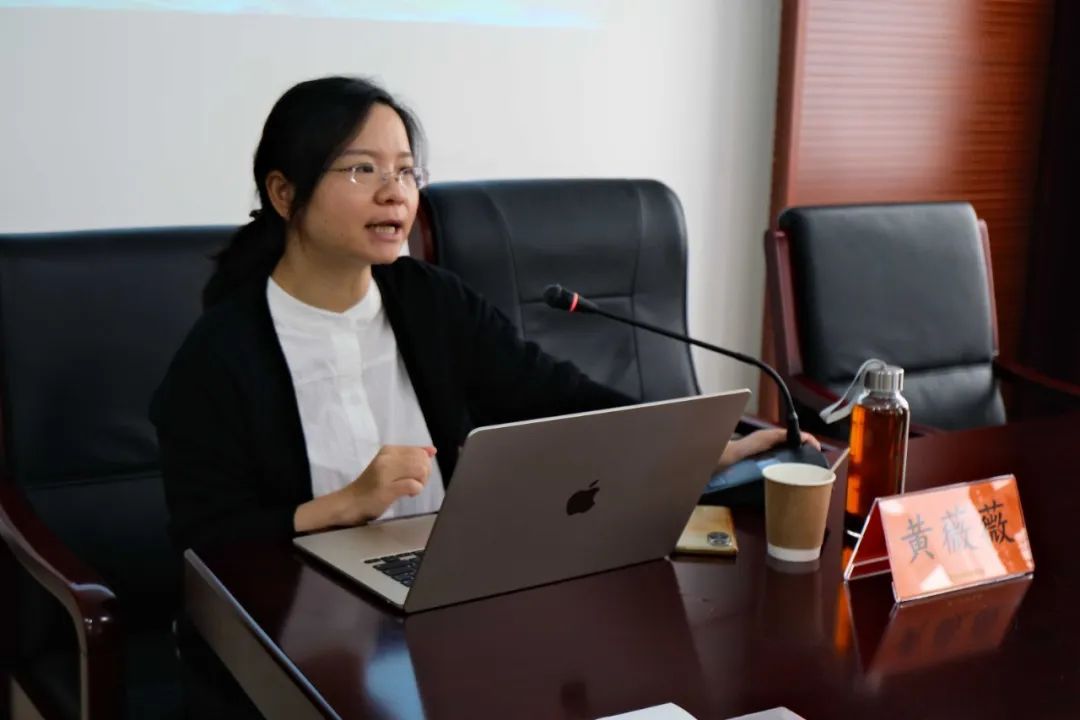
The final speaker was Professor Huang Weiwei, whose presentation was titled "The Concept of the Sublime and Its Philological Interpretation." The term "sublime" has been employed in the realms of poetry and rhetoric since the era of Homer, alluding to notions of "excellence and distinction." Longinus, in his treatise On the Sublime, posits that the sublime represents the highest quality, serving as a benchmark to define the greatness of all eminent writers. However, this treatise was, for a time, overlooked by academia due to various factors. Stephen Halliwell's recent work, On the Sublime Attributed to Longinus, makes significant contributions to this text from a classical philological perspective. This work is divided into two parts, including translation and commentary, with a comprehensive 62-page introduction that meticulously examines On the Sublime. Drawing on Halliwell's insights, she explored the core theory of On the Sublime, which identifies five sources of the sublime, including grand thoughts, intense emotions, rhetorical devices, noble diction, and the arrangement of words.
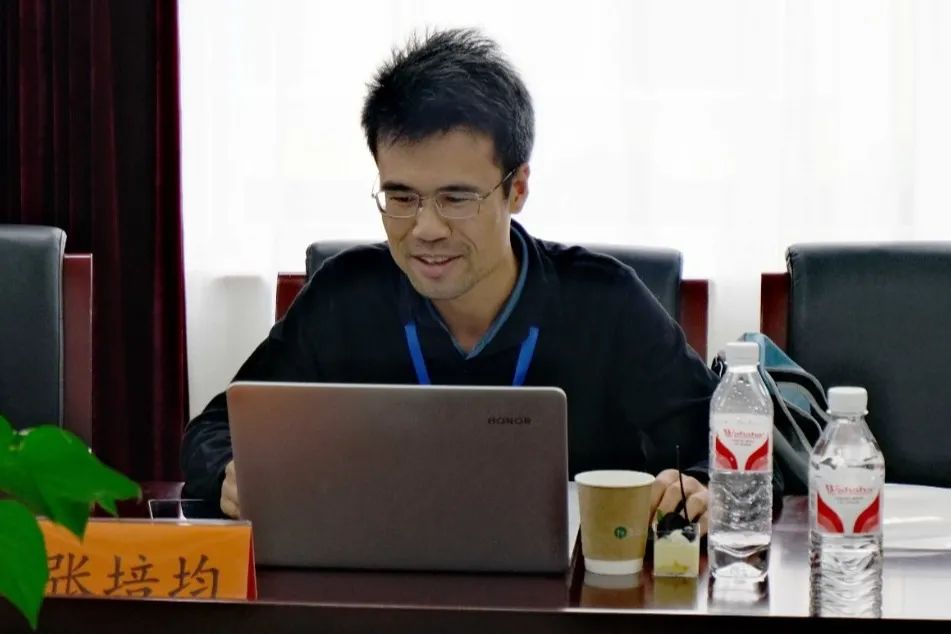
Following the conclusion of the speech and open question and answer session, Associate Professor Lou Lin and Professor Zhang Peijun offered their critiques on the works of each speaker. The presenters then provided brief responses to the feedback.
Sub-forum II
Concurrent with Sub-forum I, Sub-forum II was chaired by Researcher Wang Yufeng, with Associate Professors Liu Zhen and Zhong Bili serving as commentators.
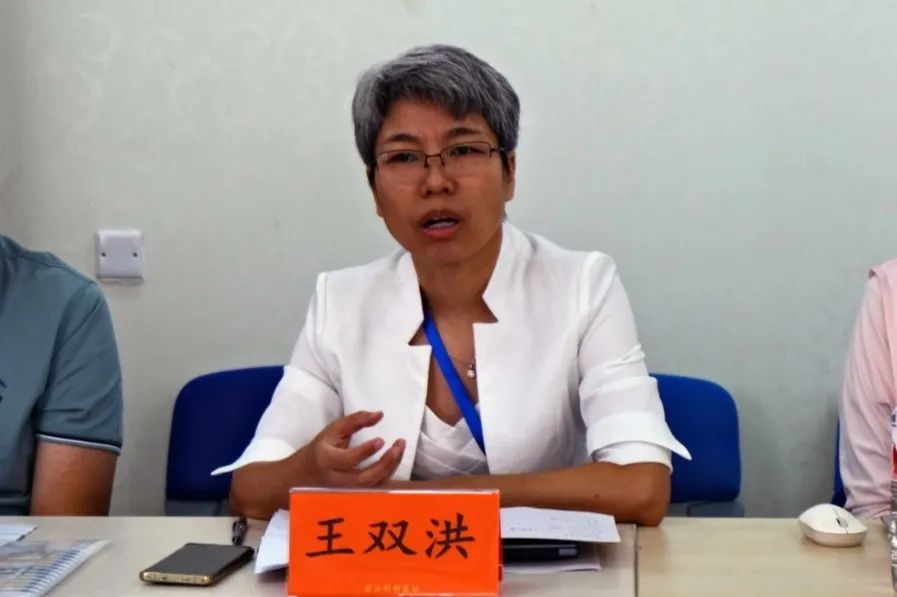
The first speaker was Associate Researcher Wang Shuanghong from the Institute of Philosophy at the Beijing Academy of Social Sciences, presenting on the topic "Which Classics and What Studies: Insights from a Classical Studies Debate." The nature of classical studies and the construction of such a discipline are currently focal points in academic circles. She began with the debate between German classicist Wilamowitz and Nietzsche, highlighting the tension between historical and scientific positivist approaches to classical studies and those that emphasize understanding ancient thought and its modern context, as well as the importance of human education. Wang endeavors to offer a reflective perspective for the development of Chinese classical studies, suggesting that classical education should complement the lack of humanistic and moral cultivation in technical and scientific education, thereby balancing the discrepancies in educational quality.
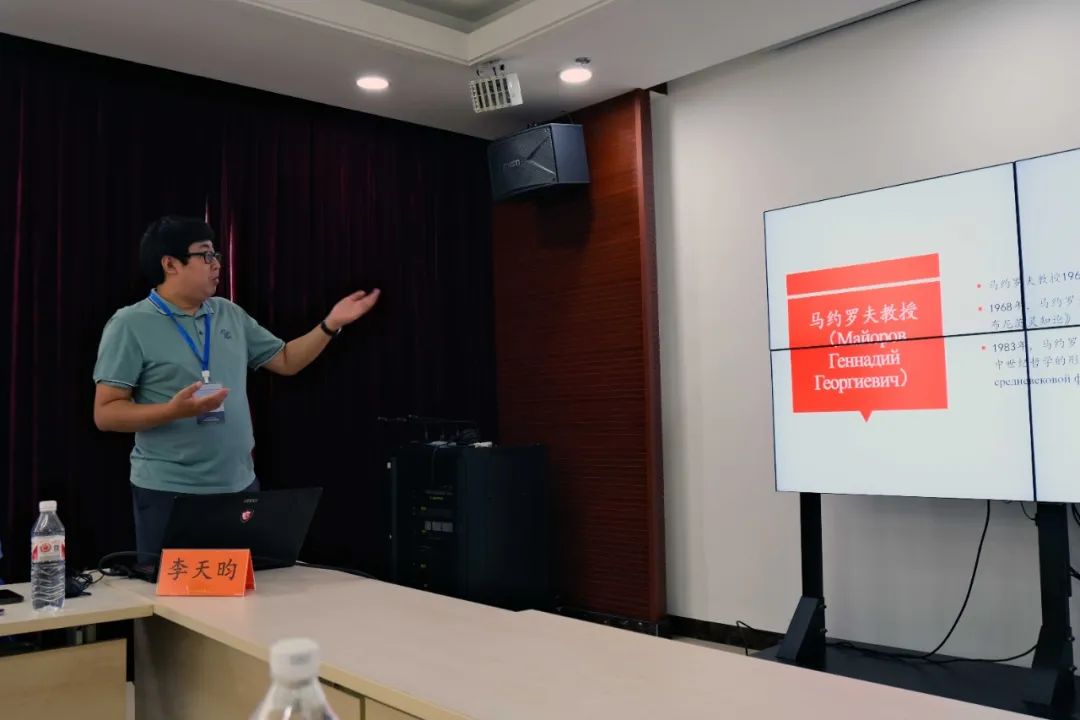
The next speaker was Professor Li Tianyun, presenting on "The Current State of Classical Studies in Contemporary Russia." Drawing from his own academic experiences, he highlighted that Russian classical studies have traditionally emphasized historical research. Institutions such as the Russian Academy of Sciences, Moscow State University, and St Petersburg State University are also prominent centers for philosophical studies. Meanwhile, classical philology in Russia leans more towards linguistic studies, with literary research being relatively underrepresented. Overall, the contributions of Russian classical studies to the global field have been largely overlooked. Translating and introducing the research achievements of modern Russian scholars on ancient Greece and Rome holds significant importance for enriching and advancing classical studies in China.
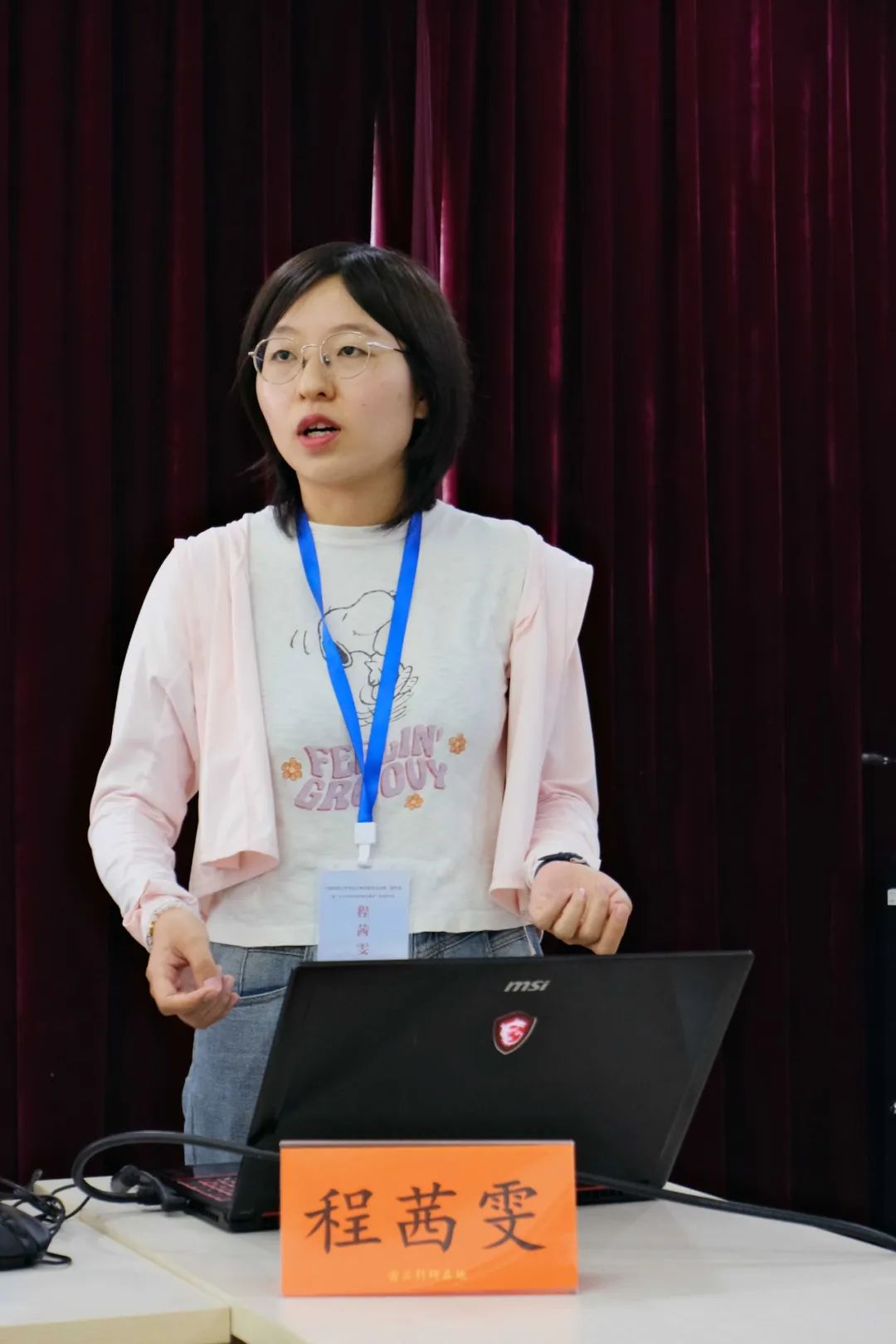
The subsequent speaker was Professor Cheng Qiwen from the School of Humanities at Shanghai Normal University, presenting on the topic "‘Until You Reach the Ends of the Earth': The Self-Education of Dio Chrysostom and the Greek Ideal of Cultivation." She focused on the text In Athens, or On Exile, highlighting Dio Chrysostom's self-narrated transformation into a philosopher during his exile through self-education. This transformation granted him the authority to instruct the Romans, allowing him to construct a cultural identity that shifted from a sophist to a philosopher. Building on this foundation, Dio implied that his philosophical self was divinely inspired to undertake the mission of educating the Roman Emperor Trajanus with classical Greek ideals. He aspired to realize his vision of classical culture through the emperor as his pupil, establishing a worldly order that mirrored the divine order of Zeus's celestial reign, achieving harmonious rule extending to the "ends of the earth." Although Dio's educational endeavors with Trajanus ultimately failed, he did not abandon his ideals. Instead, he sought to "usurp" the role of the monarch, aiming to "govern" the Greek world himself.

The next speaker was Xu Yi, a doctoral candidate from the School of Foreign Languages, Peking University, presenting on "Divine Law and State Politics in the German Baroque Drama Papinianus." Papinianus is the most significant dramatic work by Gryphius. In the play, the jurist Papinianus is executed for steadfastly adhering to his conscience and refusing to defend the emperor's act of familial murder. Ultimately, he becomes a martyr for justice, virtue, and divine law, thereby attaining eternal glory and redemption. In contrast, the unjust "tyrant" Bassianus, who relentlessly pursues worldly power and desecrates divine law, is tormented by his conscience and meets his retribution. Through this martyrdom drama, Gryphius stages a discourse on the relationship between politics and morality in early modern Europe. Xu Yi, drawing on the classic commentaries of thinkers like Bodin and Grotius, argues that Gryphius, from the perspective of the empire and the European landscape, critiqued the negative impacts of the detachment of politics from morality following the spread of Machiavellianism, such as the abuse of power and moral decay.

Professor Yu Xue from the School of English Studies of Dalian University of Foreign Languages delivered a discourse titled "On Greek Identity and Roman Otherness in Wilde's Oxford Notebooks." She posited that, through an examination of the notes concerning ancient Greece and Rome in the Notebooks, Wilde not only admired the ancient Greeks for their reverence for beauty, individualism, and poetic imagination but also, through his critiques of Mommsen's History of Rome, constructed ancient Rome as a cultural "other" that constrained individualism through education and poetic imagination through religion. Wilde's polarized attitudes towards these two great civilizations are attributed to both familial and societal influences.

Associate Professor Xu Jian from the School of Public Administration, Guizhou University delivered the concluding remarks on the theme of "The Concept of Property in the Stoics." He noted that John Locke, the progenitor of modern property rights theory, held Cicero's On Duties in high esteem, a work significantly influenced by the Stoics. Therefore, it is essential to trace and explore the Stoic perspective on property through Cicero. For the Stoics, the ethical foundation of private property rights, particularly communal property rights, can be found in the doctrine of self-ownership, which serves as the inception of justice. In Hegel's model of capitalist possession, the Stoics left some important traces, yet by examining the textual context, one can discern crucial differences rooted in the issue of the status of virtue. It can be said that the Stoic view on property is neither entirely "ancient" nor wholly "modern," but rather subtly straddles the line between the two.
Ultimately, Associate Professor Liu Zhen and Associate Professor Zhong Bili provided a concise summary of the presentations delivered by the speakers and posed further questions for consideration. The presenters, in turn, responded to the feedback and evaluations offered.
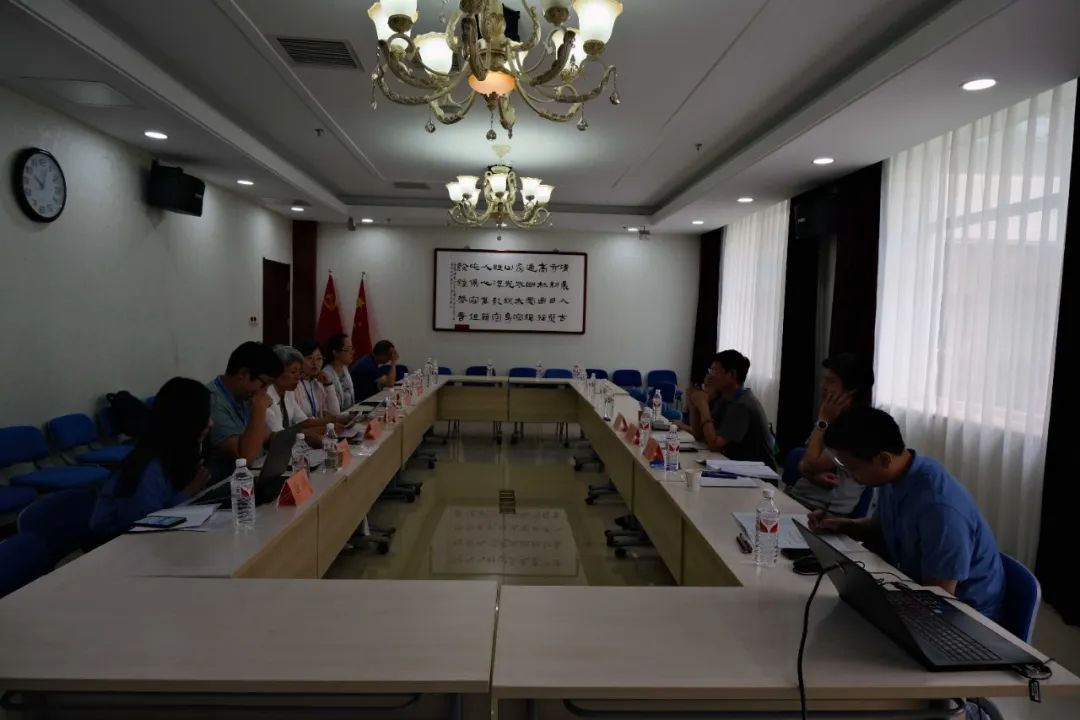
The sub-forum venue
The closing ceremony

The closing ceremony of the conference
Following the captivating symposium, the Second Annual Conference of the Classical Studies Association of the Chinese Association of Studies of Foreign Literature concluded with a closing ceremony.
The closing ceremony took place on the afternoon of August 11, presided over by He Fangying, secretary-general of the Classical Studies Association of the Chinese Association of Studies of Foreign Literature. President Liu Xiaofeng delivered a speech. President Liu remarked that this year's conference featured a thorough and enthusiastic discussion of research essays. From an experiential standpoint, he expressed the hope that more authors engaged in Chinese studies would participate in future conferences. Additionally, he noted that the time allocated for the reading sessions was relatively short, and he hoped that future conferences would enhance this aspect by preparing more thoroughly in terms of time and reading materials, allowing participants to collectively explore more remarkable works. Meanwhile, President Liu pointed out that although disciplinary differences might lead to varying opinions and philosophical approaches might diverge, the most challenging disagreements actually stem from the differing beliefs between ancient and modern times.
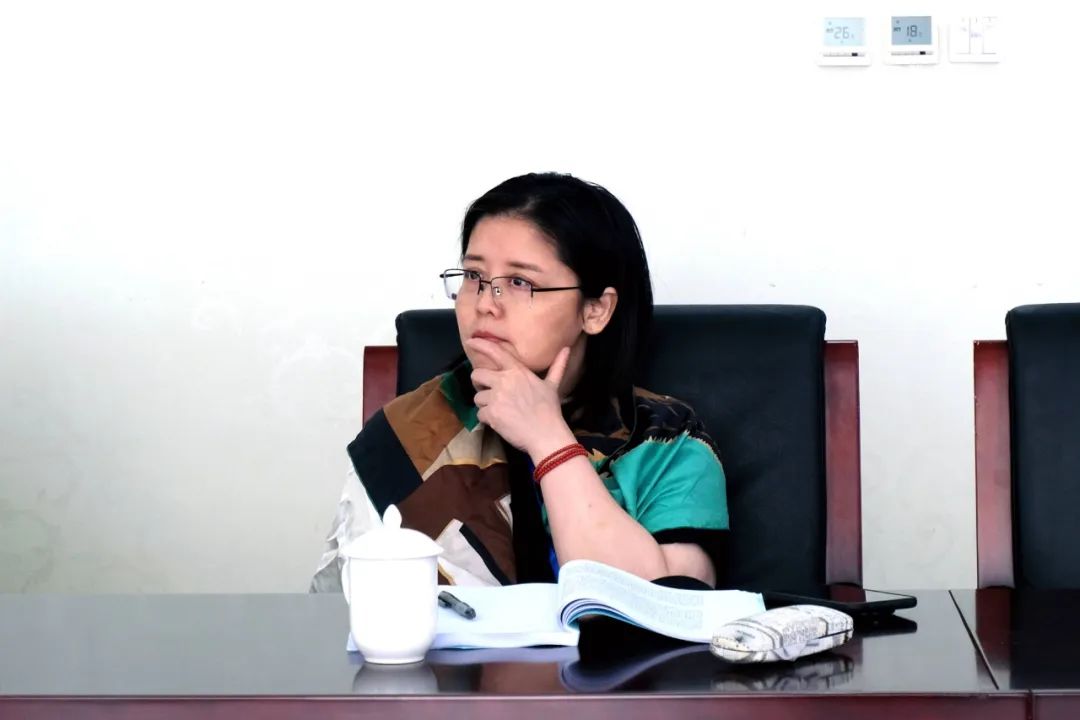
In conclusion, Secretary-General He Fangying shared the arrangements for the upcoming annual conference, expressing her anticipation for more works and discussions to be featured at future gatherings for the collective learning of interested people from various fields. Finally, Secretary-General He Fangying officially declared the successful conclusion of the Second Annual Conference of the Classical Studies Association of the Chinese Association of Studies of Foreign Literature and the symposium on "Dialogue Between Ancient and Modern in Chinese and Western Classical Studies."
